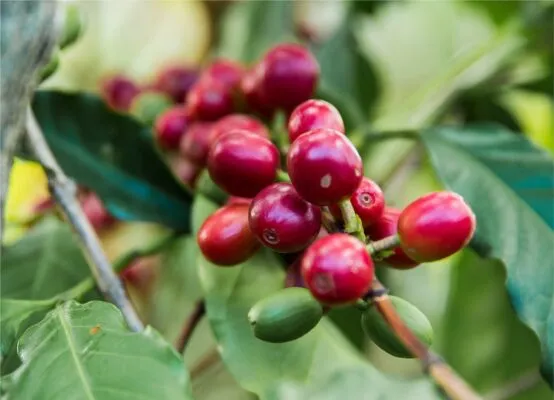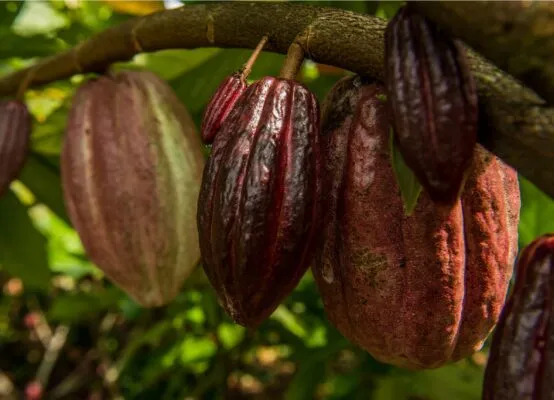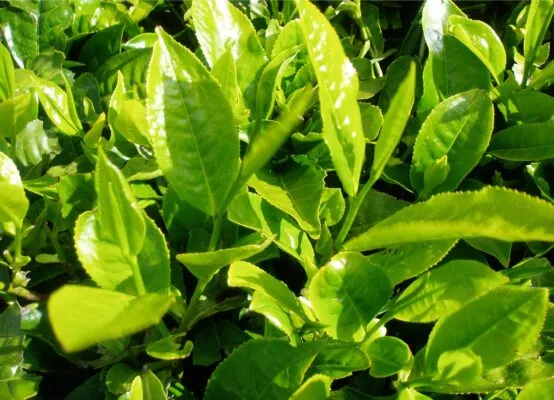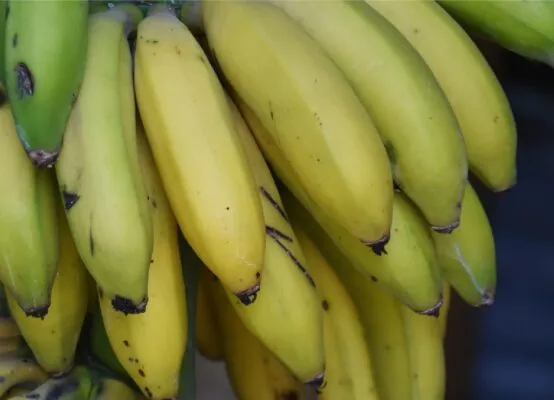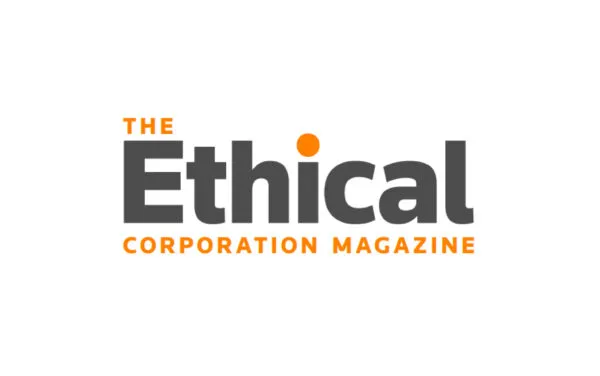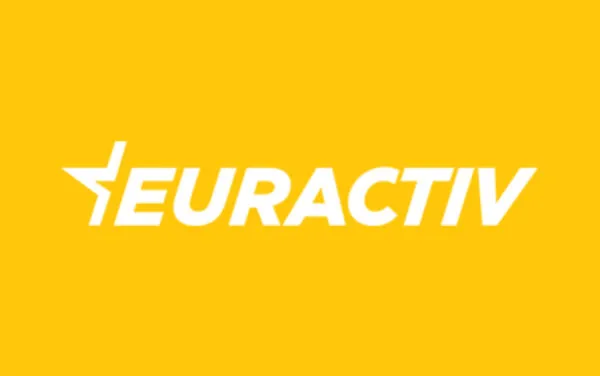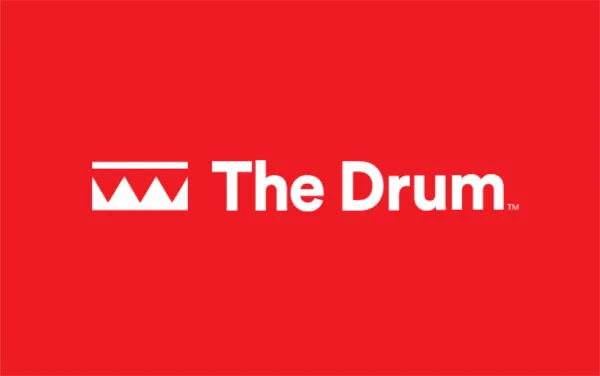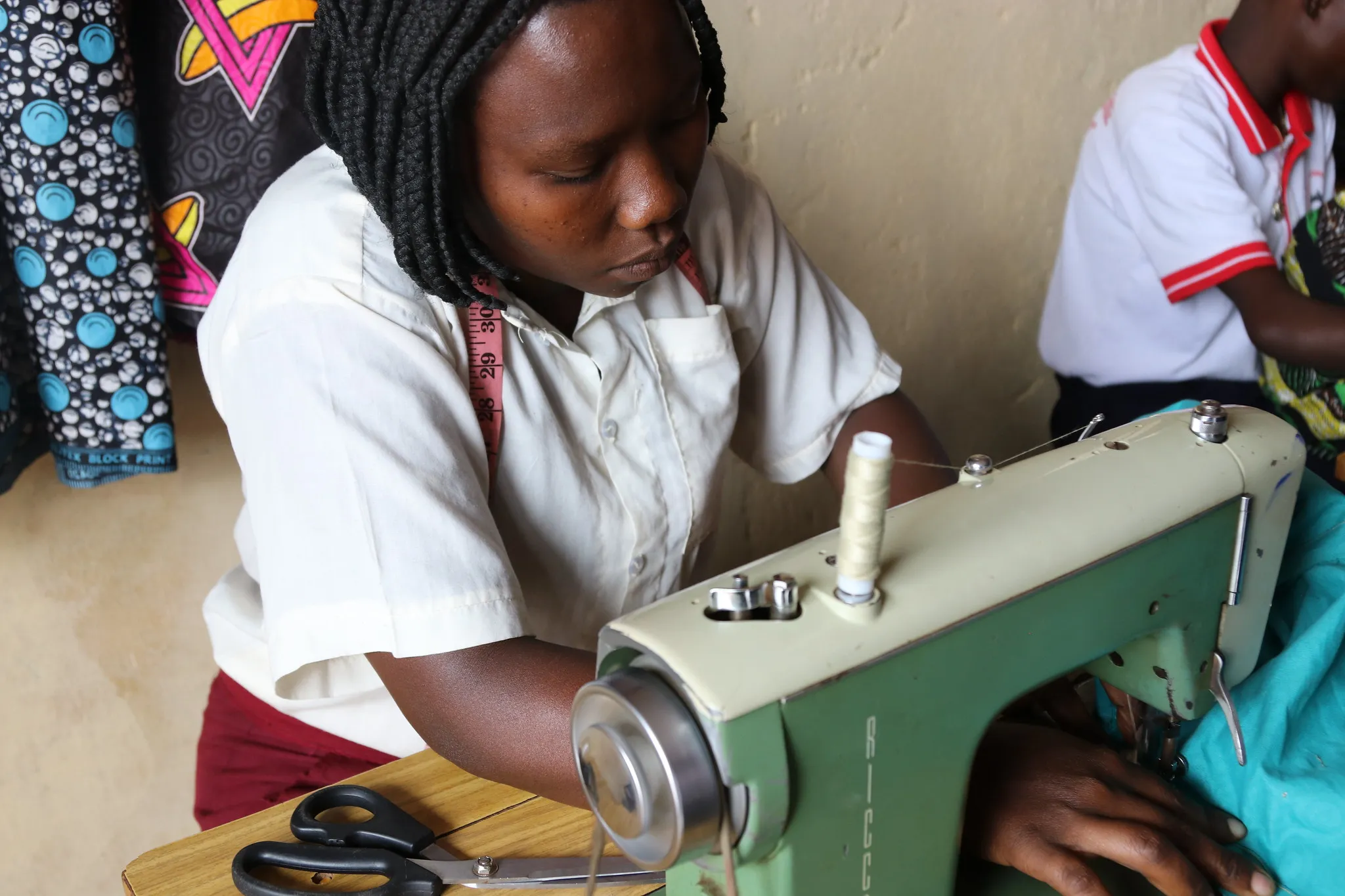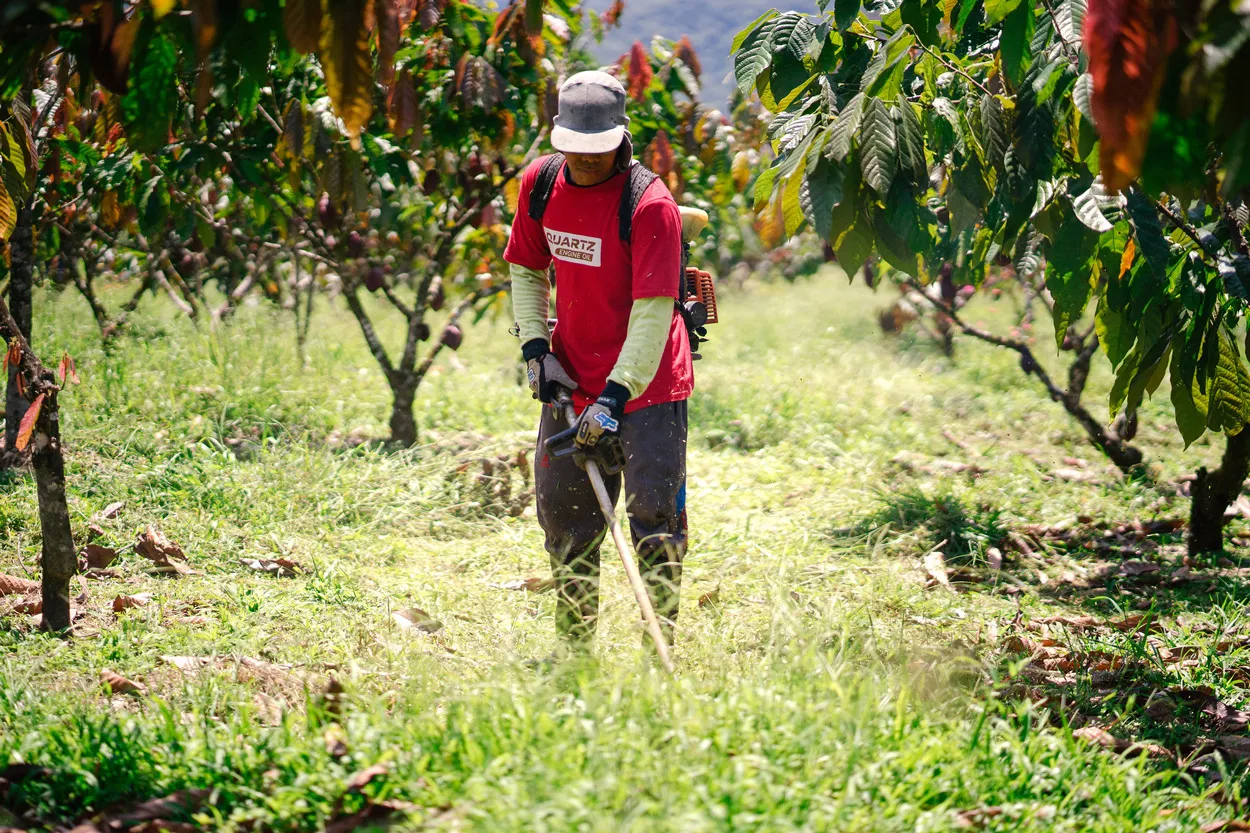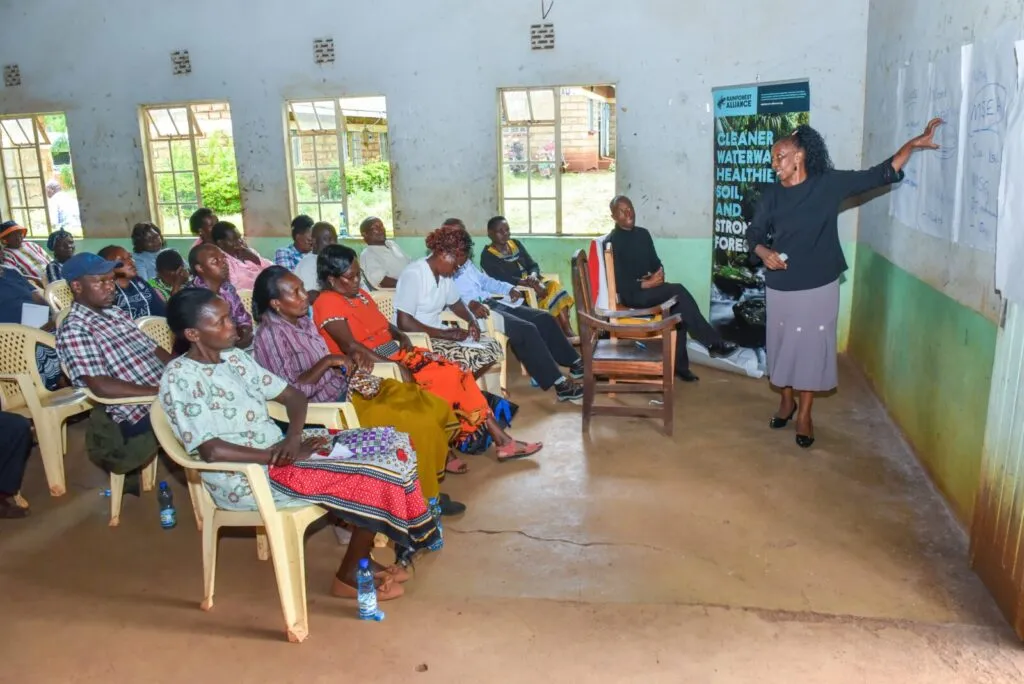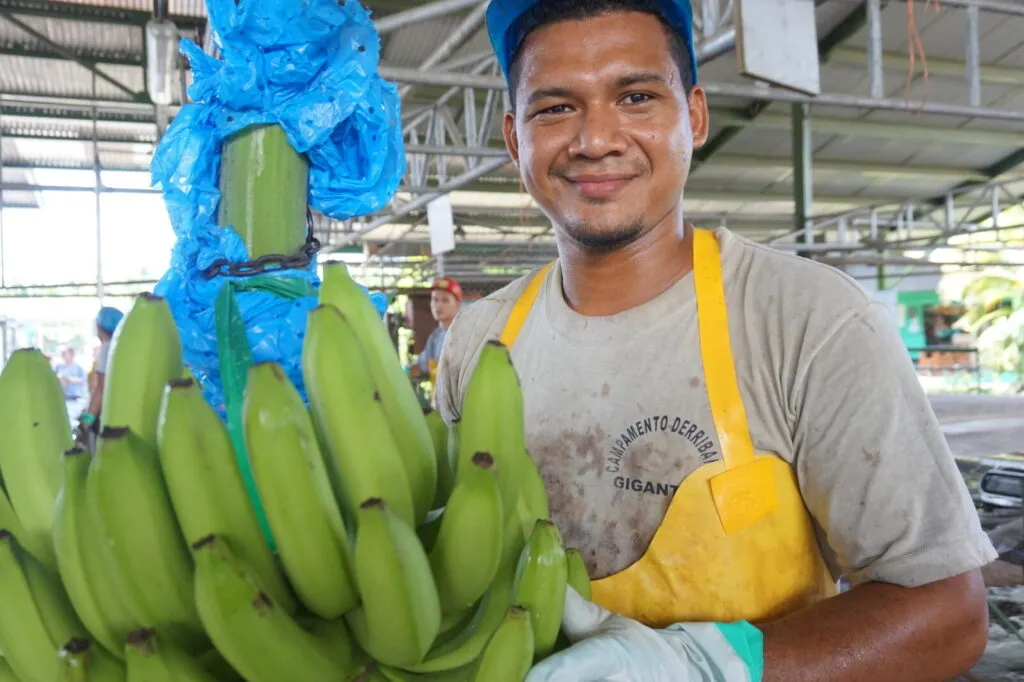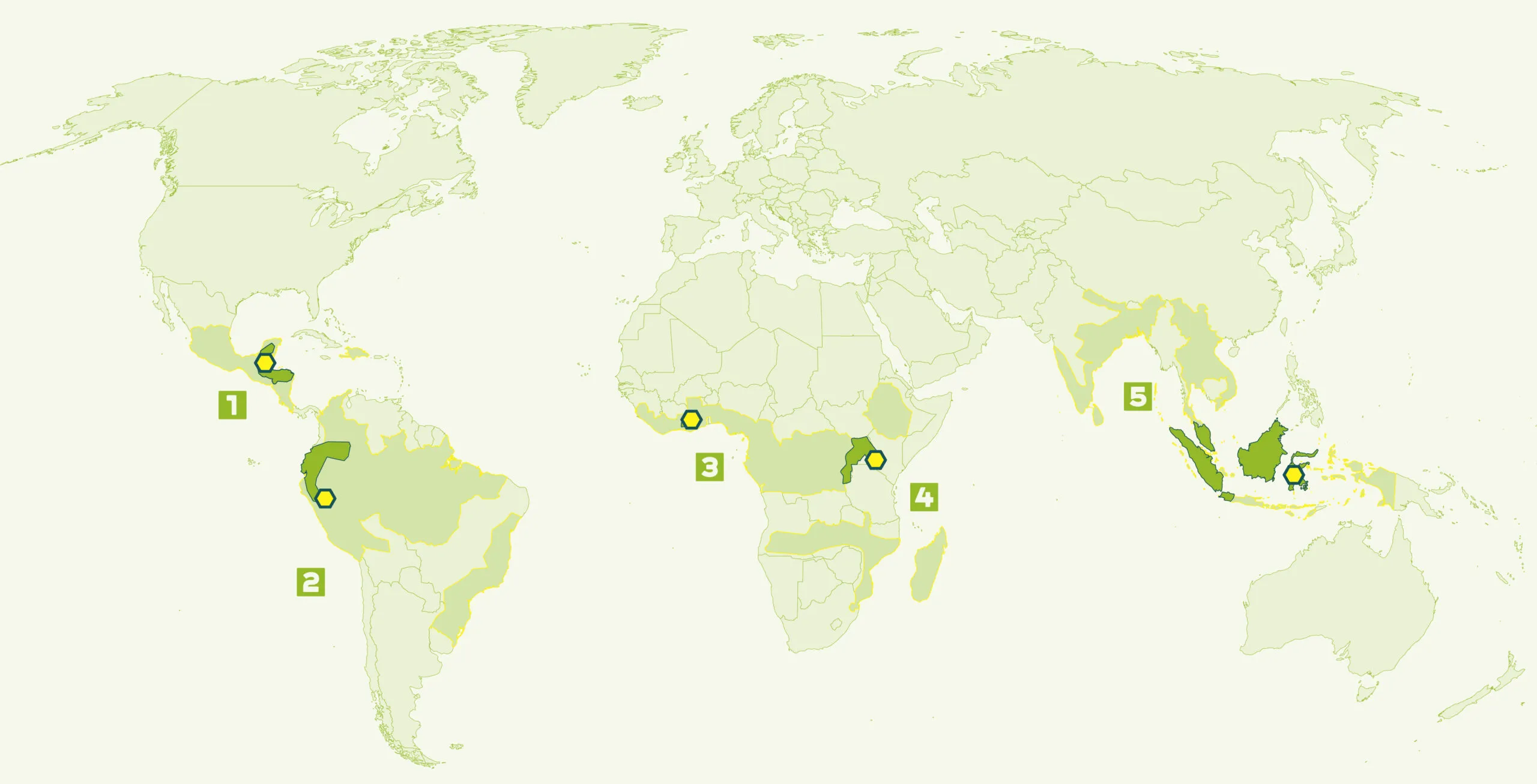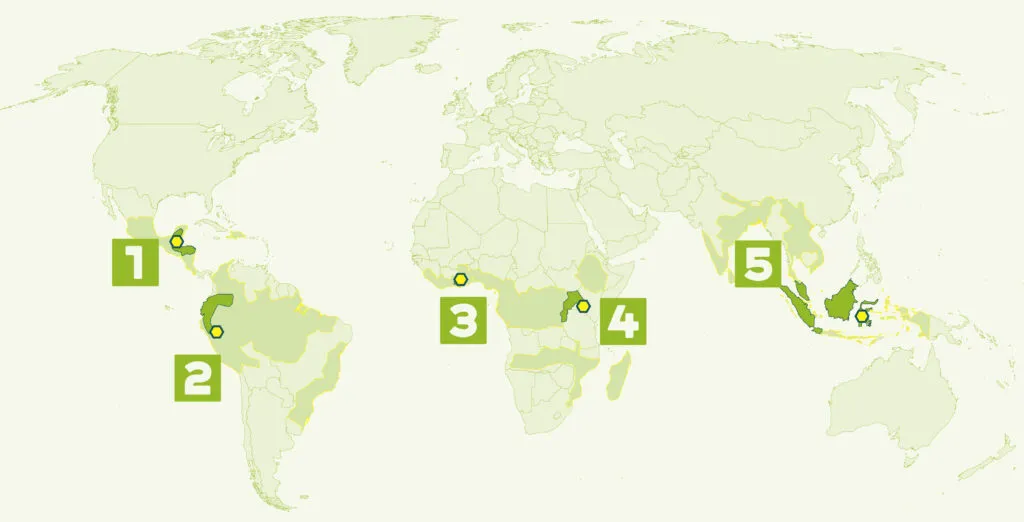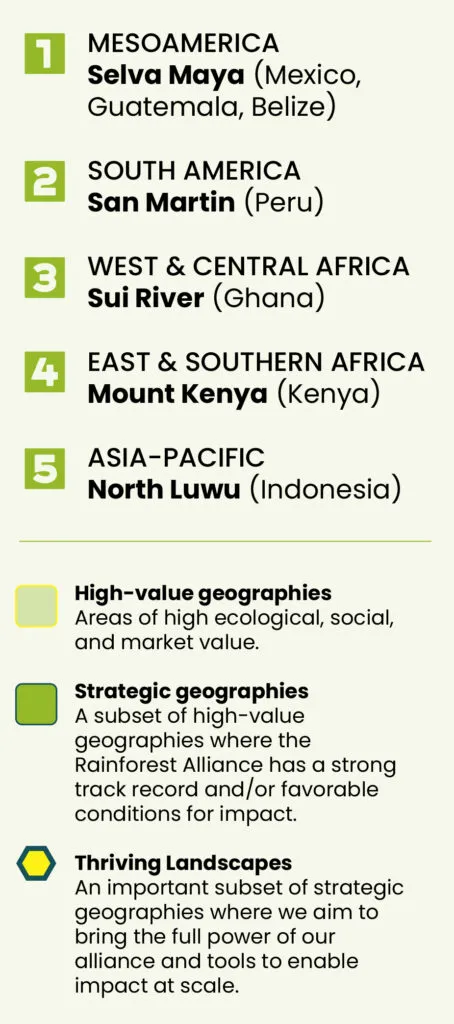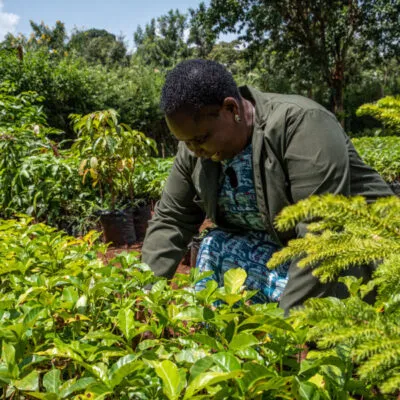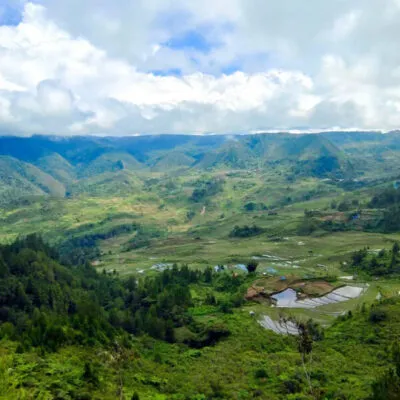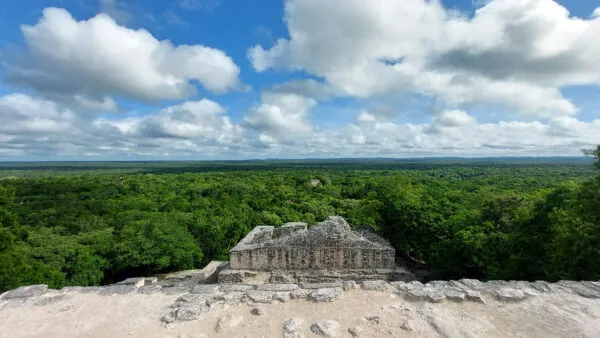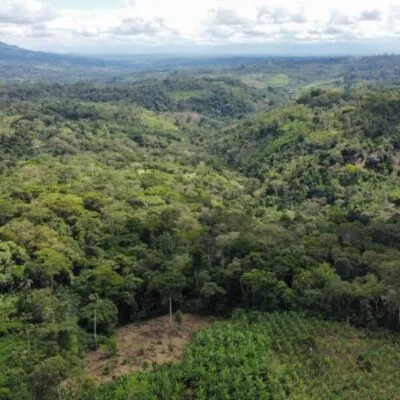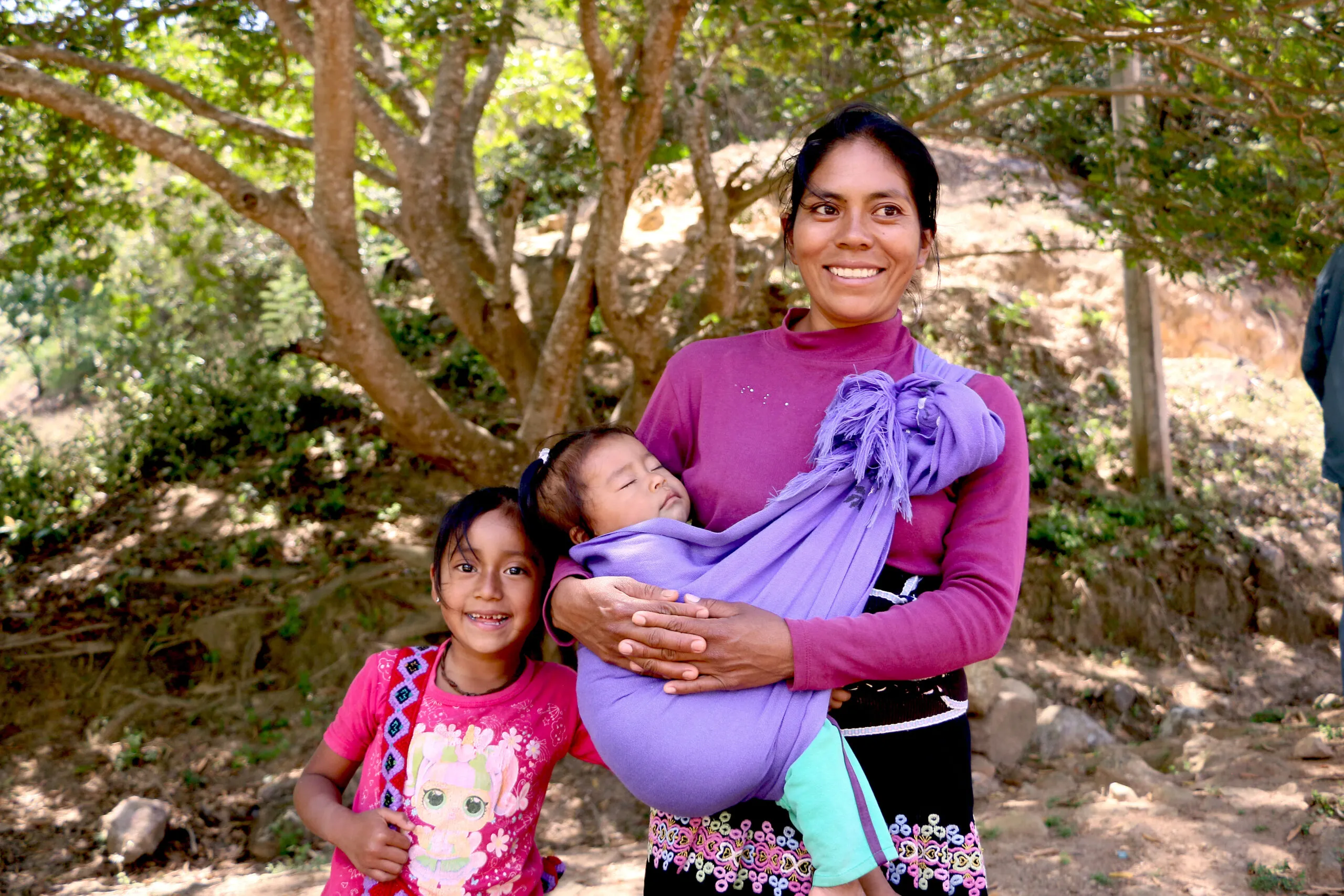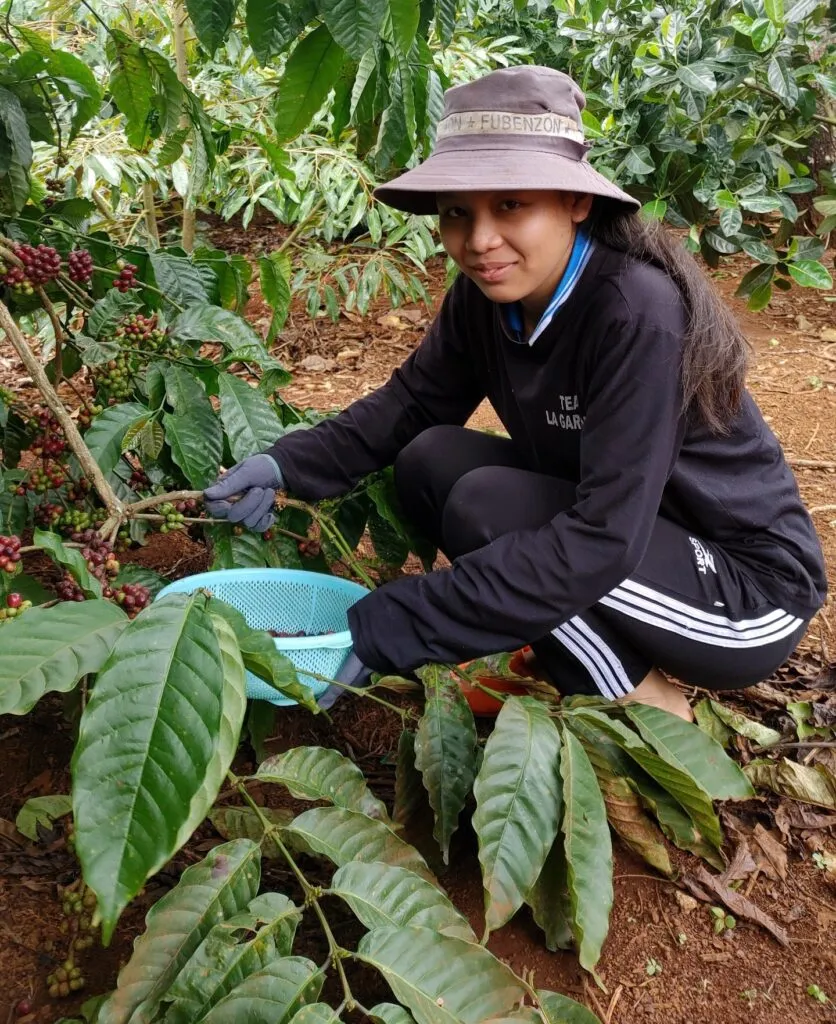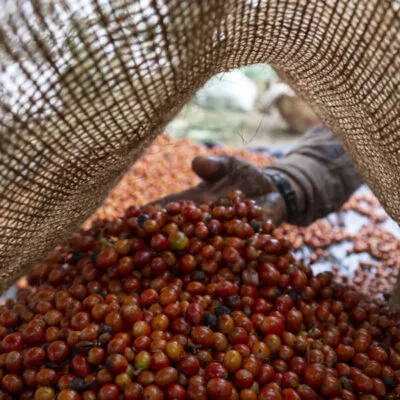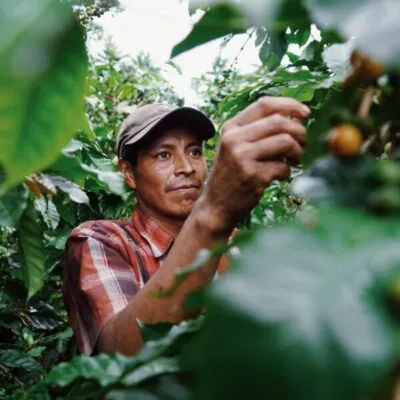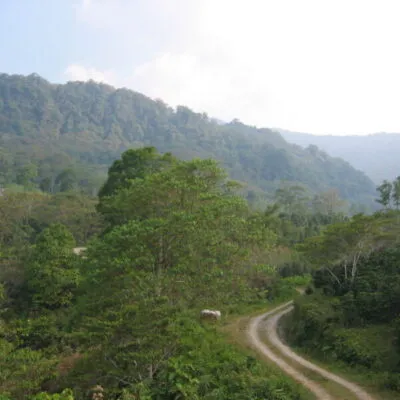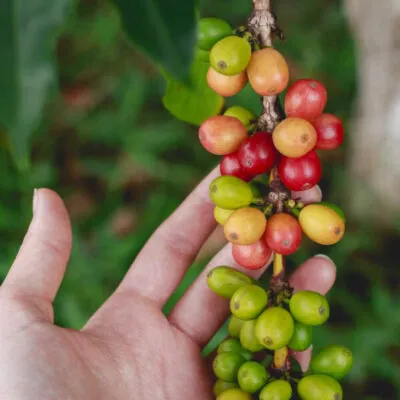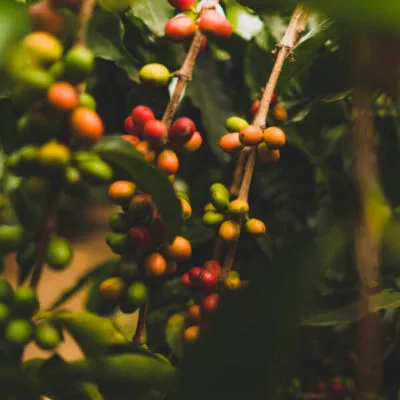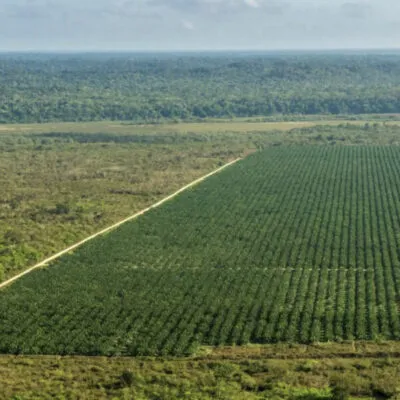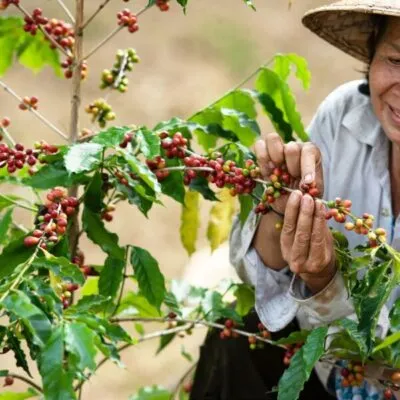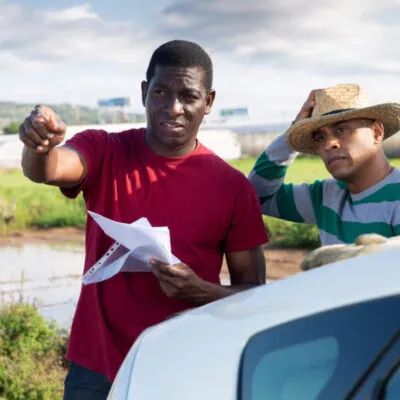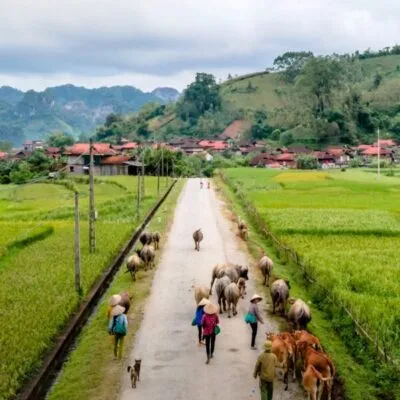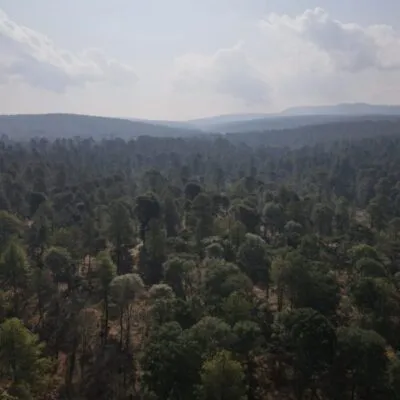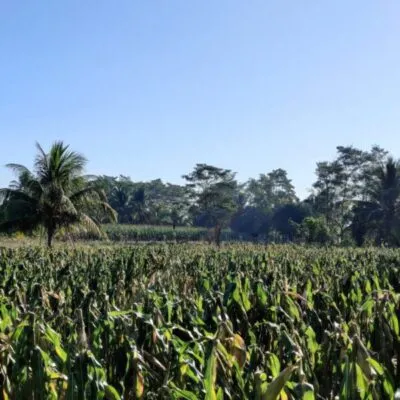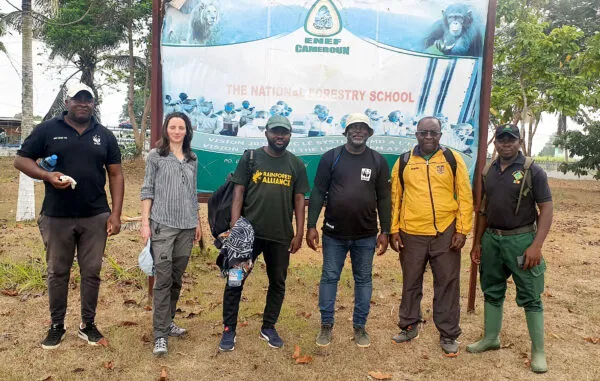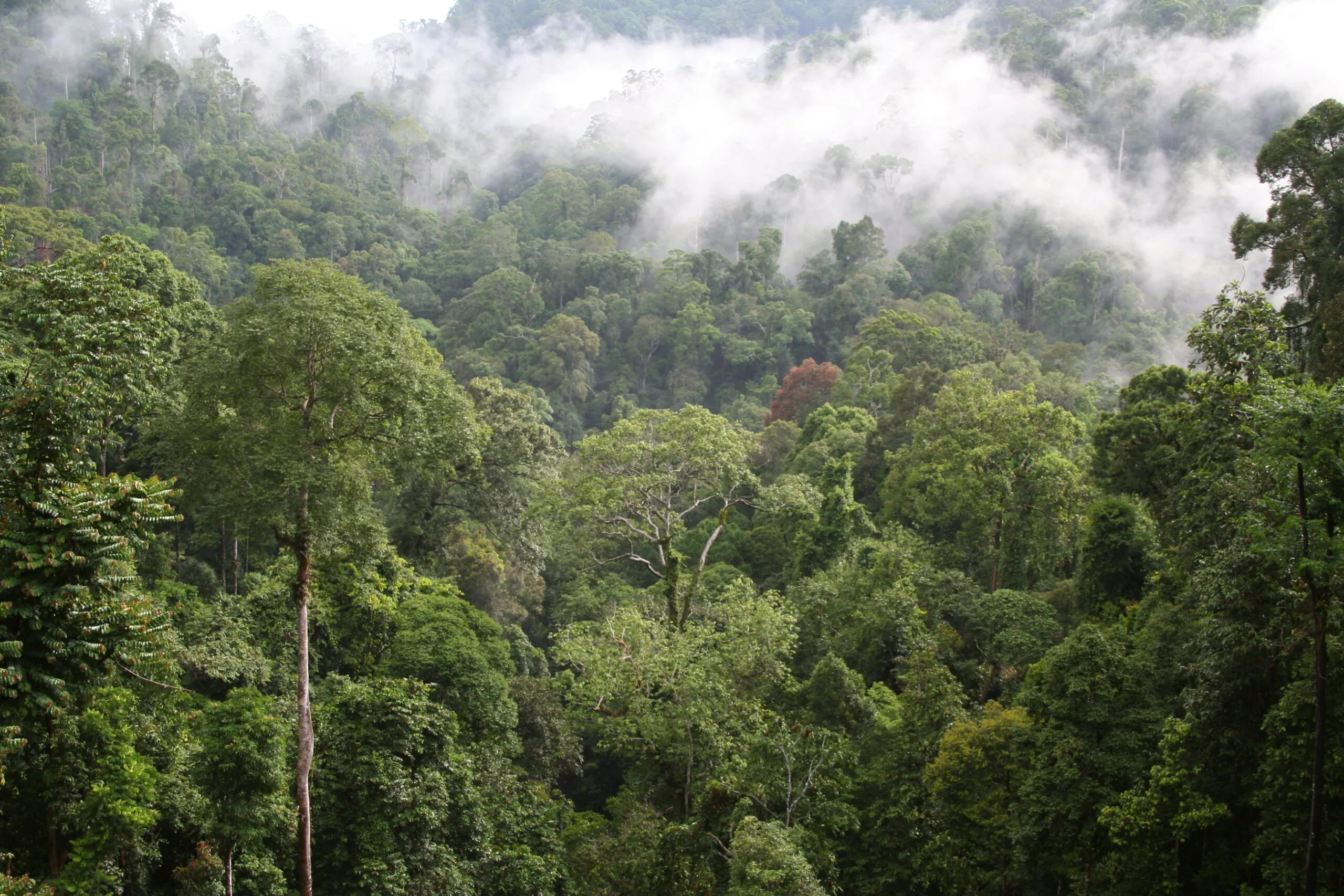
Destination: Regeneration
-
2023
Annual Report
-
2023
Annual Report
-
2023
Annual Report
-
2023
Annual Report
-
2023
Annual Report
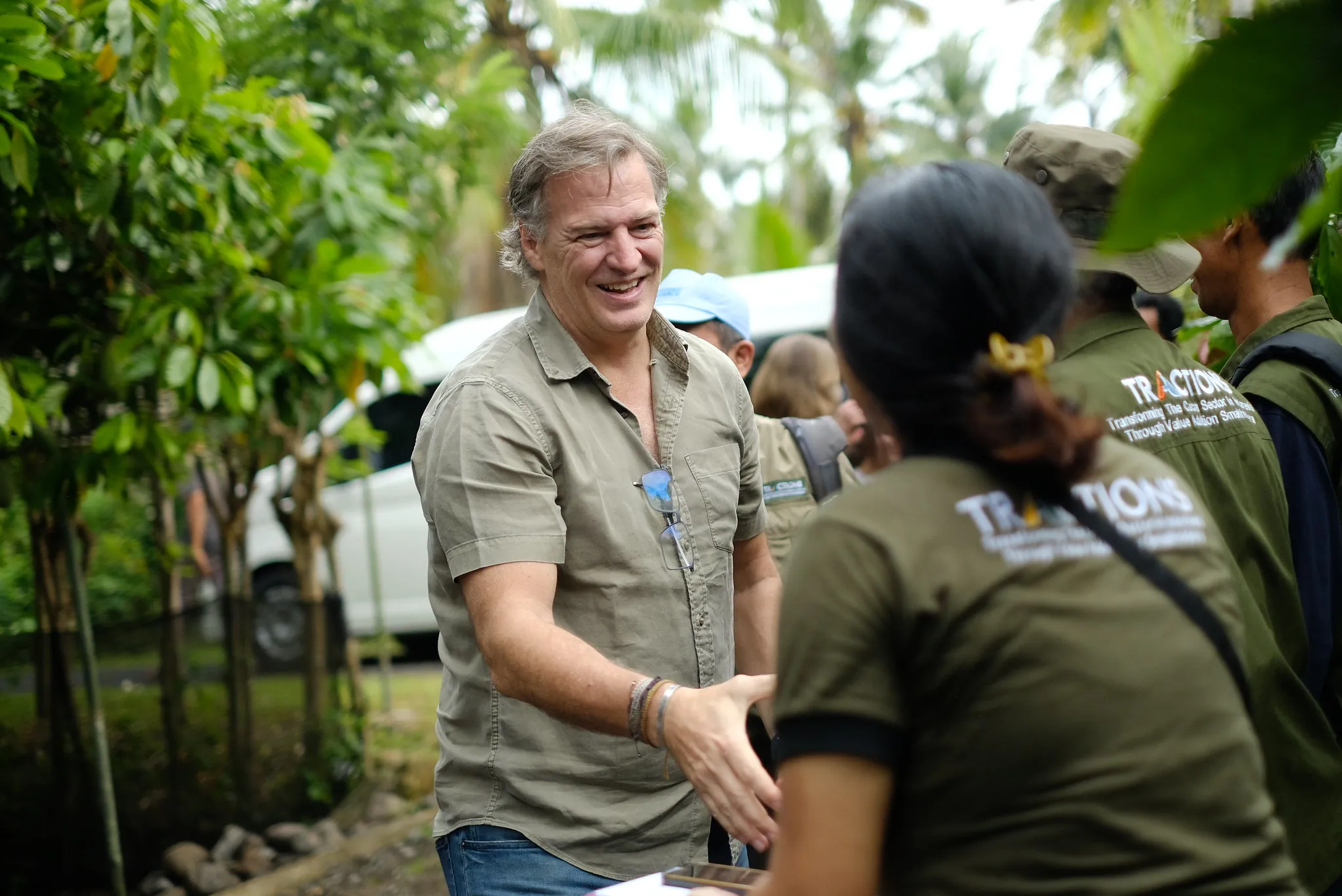
VIDEO: A Message from Our CEO
“We can all play our part in making our generation the first truly sustainable generation. Our destination is regeneration, and we’re all in.”
Santiago Gowland
Rainforest Alliance CEO
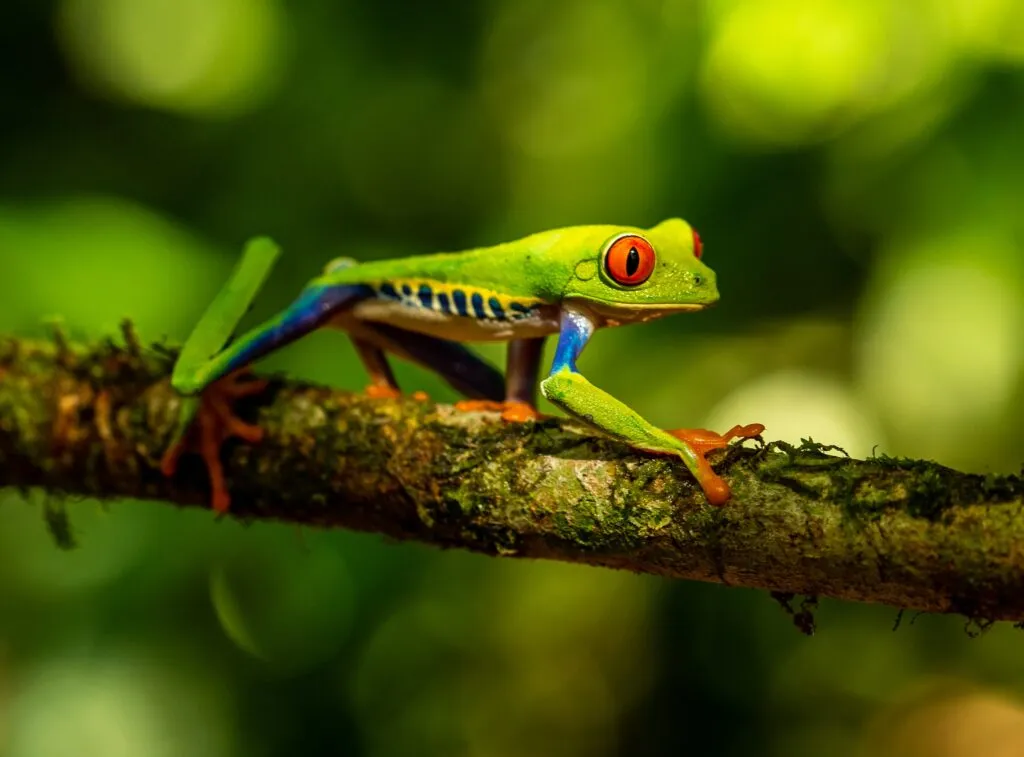
Our Strategy
Leading the Way to the Next Level of Sustainability
36 years ago, we launched a market-based sustainability model that was so practical it was radical. As we look at our world today, the hard truth is that the old sustainability models are good, but not good enough. In this critical decade, we need to not only stop harmful practices but also accelerate those that heal, restore, and regenerate the landscapes and communities on which our lives depend. Our destination is regeneration, and we’re all in.
“The idea behind the Rainforest Alliance was simple: be a voice to help the people, plants, and animals that have no voice.”
Daniel Katz
Rainforest Alliance Founder and Board Chair
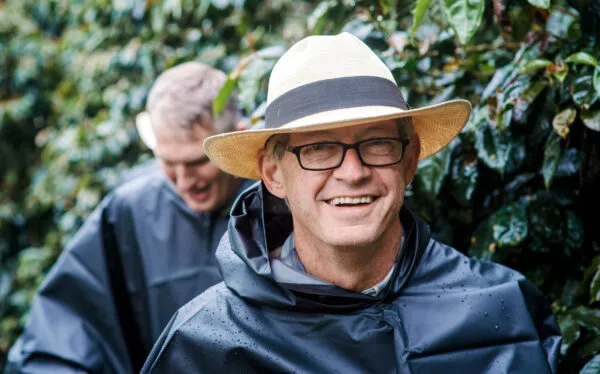
Our Founder's Story
The Rainforest Alliance pioneered independent certification to make sustainable choices easy for farmers, companies, and consumers.
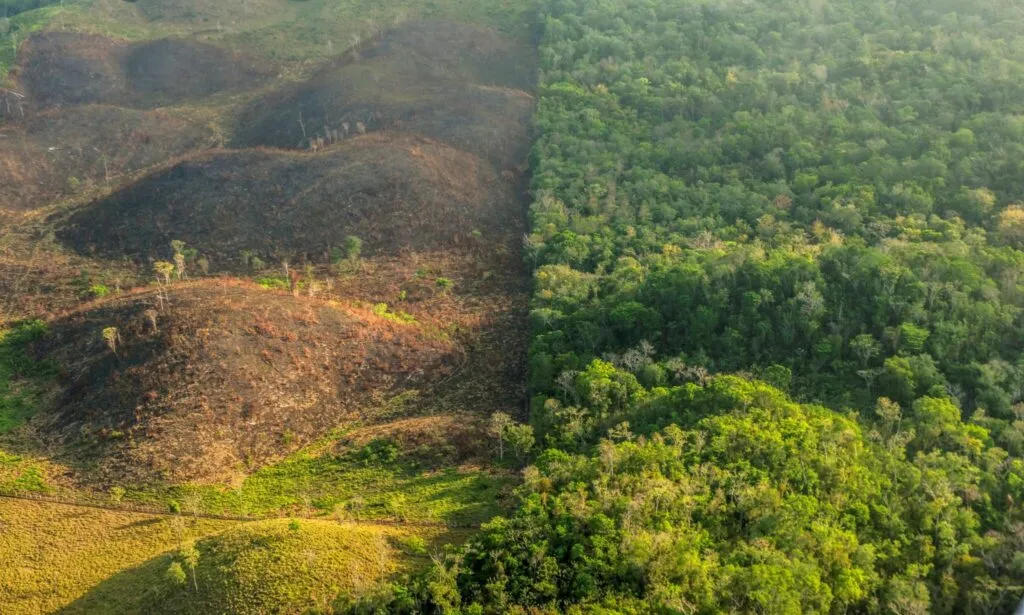
From Exploitation to Regeneration: Reinventing Markets for a Better Future
Our future depends on rainforests and tropical forests which are threatened by farming and forestry. At the same time, farm and forest communities are facing extreme poverty and losing many of their rights. These are connected crises, and to solve them, the way we do business must change.
The companies that succeed in the future will be the ones that give more than they take—the ones that answer the call to work in harmony with people and nature, not against them.
Nearly half
of the Earth’s original forest cover has already been lost.
Source: Global Forest Watch
Our Win-Win-Win Approach for Achieving Impact
We want markets to become the fastest and most scalable solution to the collapse of critical ecosystems. Our strategy is to accelerate the speed and scale of impact through a virtuous cycle; where more sustainable farming leads to more committed companies and consumers, leading to more investment and support for farmers, and so on.
This cycle will act like a flywheel, with economies of scale and our brand influence, propelling us to reach 100 million people in farming and forest communities by 2030.
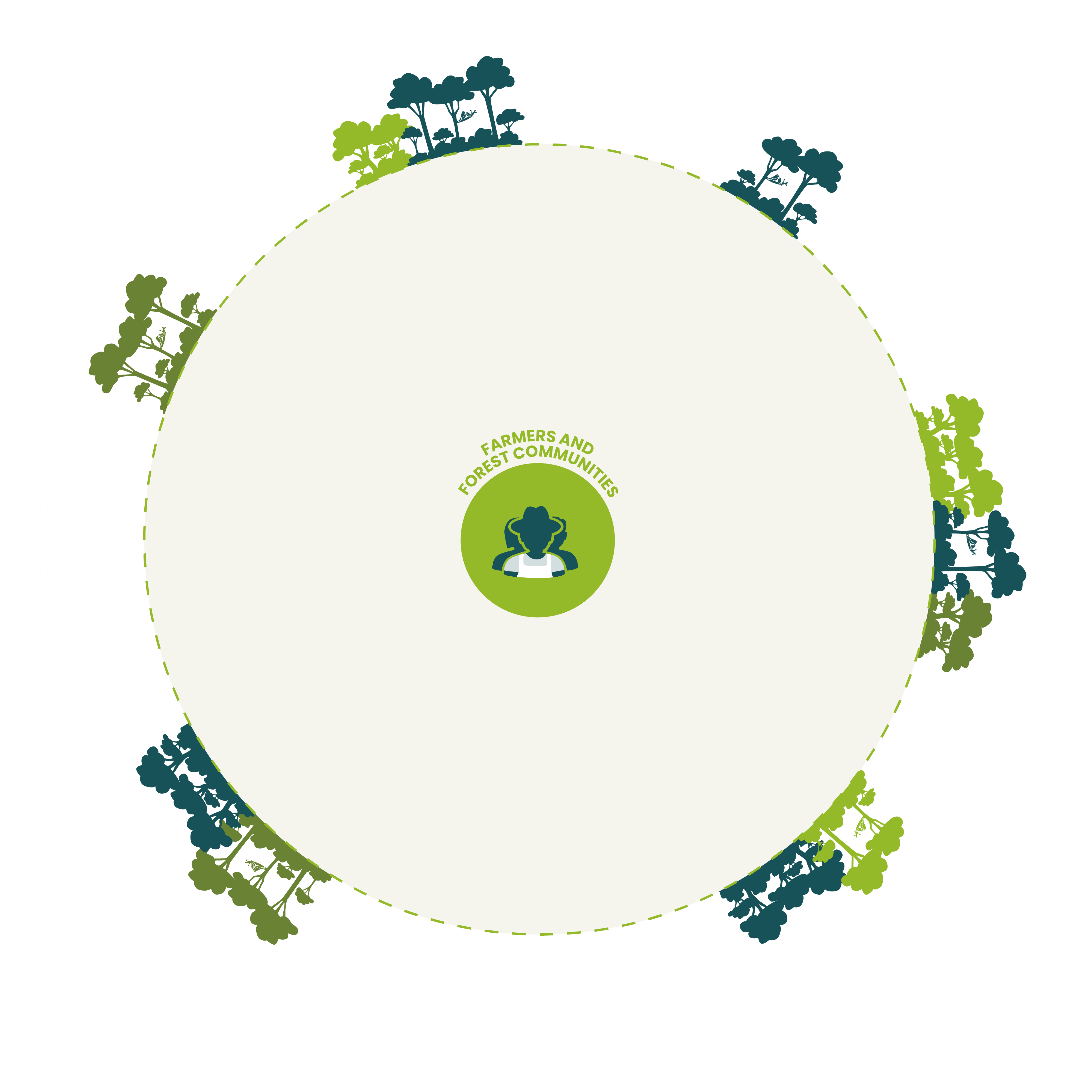
Our Key Strategic Focuses
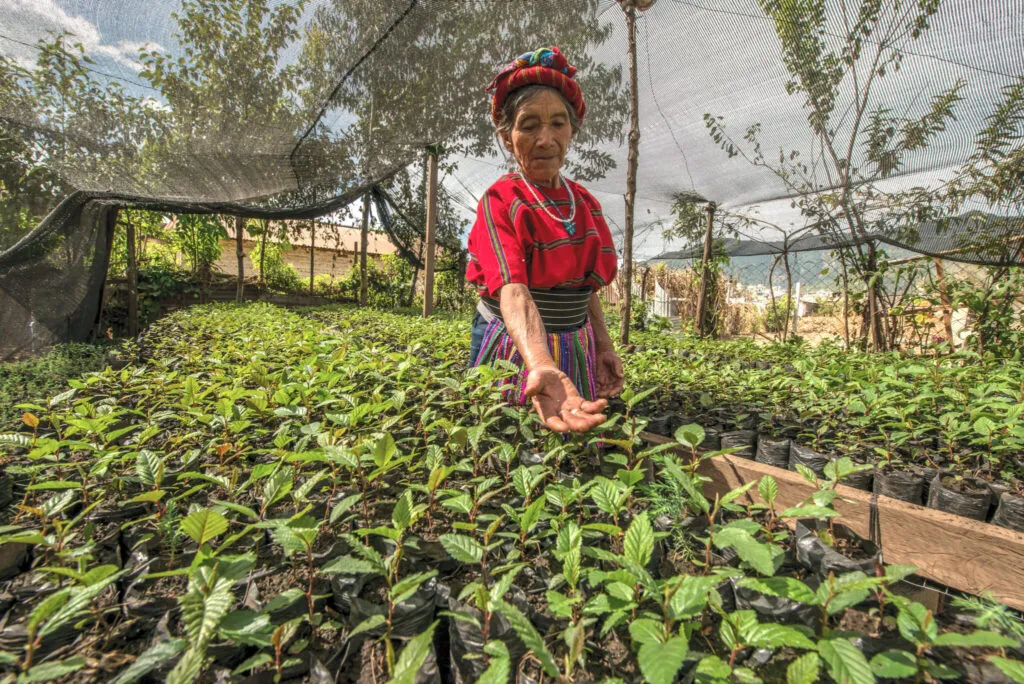
Net Positive
Transforming agriculture and forestry to net positive: We partner with farmers and communities to promote regenerative methods that give more than they take.
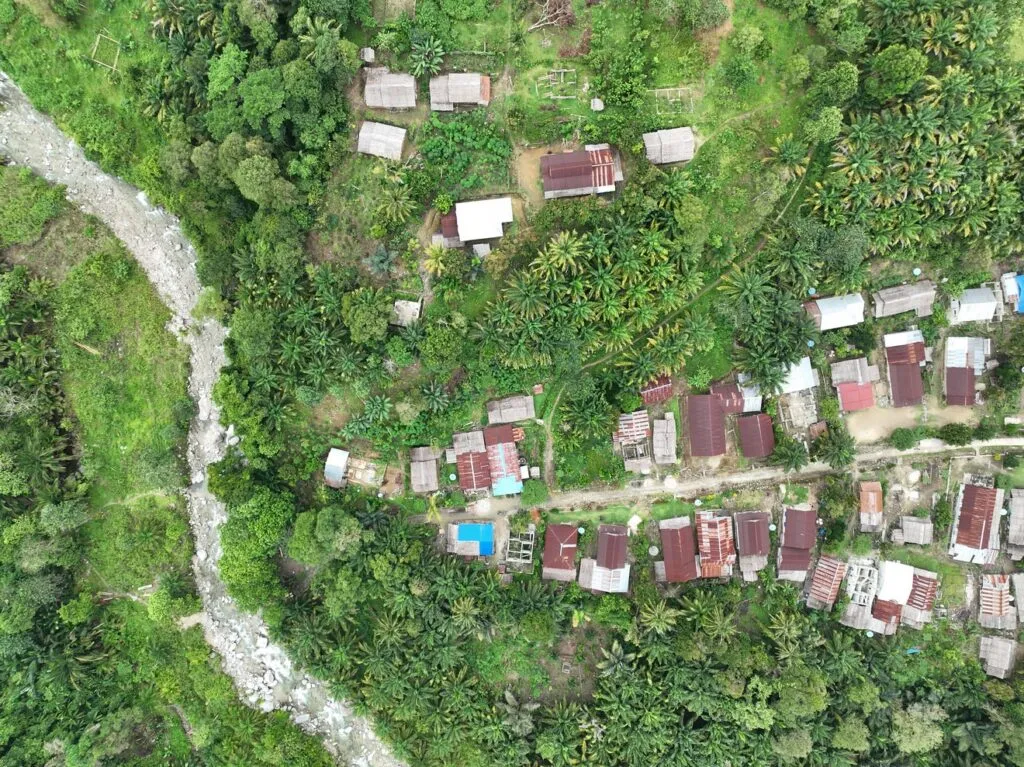
Thriving Landscapes
Turning high value geographies into thriving landscapes: With an alliance of local-to-global partners working under a shared vision, we are restoring some of the world’s most critical landscapes.
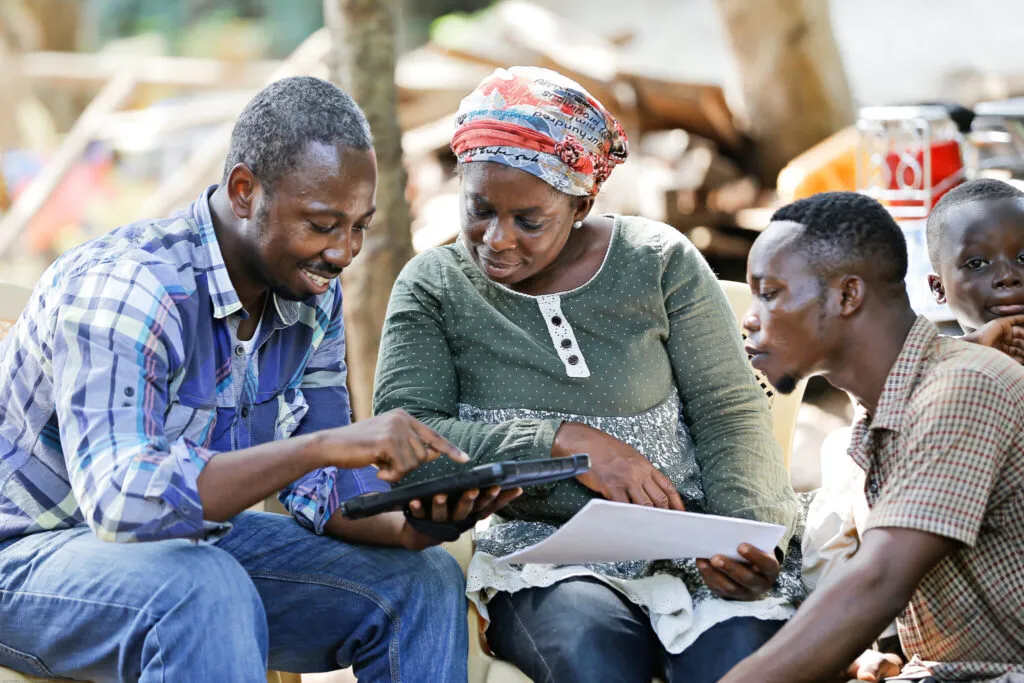
Impact Data
Empowering stakeholders with impact data: We are building one integrated data system for all our programs to drive continuous improvement from individual farms to surrounding landscapes.
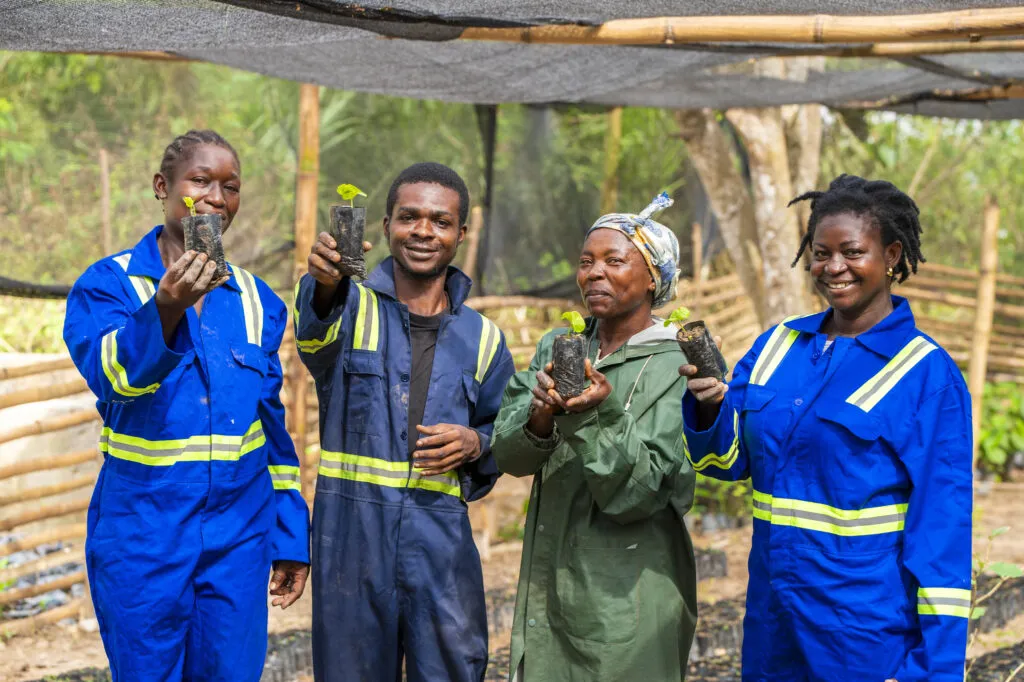
Our Global Reach
Growing Our Alliance, Scaling Our Impact
Instead of protecting nature from people, we work to restore the balance between people and nature, so that they both can thrive together in harmony. As the world reaches the point where permanent damage becomes inevitable, we are leapfrogging from a “do no harm” sustainability mindset to a “repair and restore” regenerative mindset.
The Rainforest Alliance works in more than 60 countries on both the supply and demand side of the market. On the supply side, we support millions of people in farming and forest communities to embrace more sustainable and regenerative practices to restore landscapes, while on the demand side, we help companies source more sustainable ingredients and understand their impact.
To increase the speed and scale of change, we aim to grow our alliance from 7.5 million to 100 million farmers and workers by 2030.
7.5+ million
farmers and workers on certified farms
7,600
company partners (20% growth since 2022)
5.7+ million
hectares of certified farmland
countries with certified farms and programs
million US$ invested over the last 20 years
5.9+ million
hectares of land under Integrated Landscape Management*
* Through an Integrated Landscape Management approach, the Rainforest Alliance works with rural communities to build dynamic landscape partnerships that unite all land users: farmers, forest enterprises, local leaders, companies, and governments.
109 Active Programs
45 of which launched in 2023
Landscape Programs
Over the years, we’ve learned that certification works best in combination with landscape-wide initiatives. We are now building on decades of conservation and community programs to maximize our impact in five critical landscapes. In these Thriving Landscapes, as we call them, we provide training and support to farmers, community members, and other stakeholders working collaboratively toward their shared vision.
Certification
Rainforest Alliance certification all began in 1992 with a banana farm in Costa Rica. Since our humble beginnings, we have grown to become one of the largest farm-to-consumer certification programs in the world. As we’ve grown, we’ve also evolved—we are now going beyond certification to support more farmers and companies by meeting them where they are. Through a range of innovative offerings, we will provide step-by-step pathways to accelerate regenerative farming, climate change resiliency, and better livelihoods.
Companies buy enough Rainforest Alliance Certified coffee and cocoa every day to make:
341 million cups of coffee
90 million bars of chocolate
51% of all cocoa &
17% of all coffee
produced worldwide is Rainforest Alliance Certified*
170 countries
where you can buy products with the Rainforest Alliance seal
products carry the Rainforest Alliance Certified seal
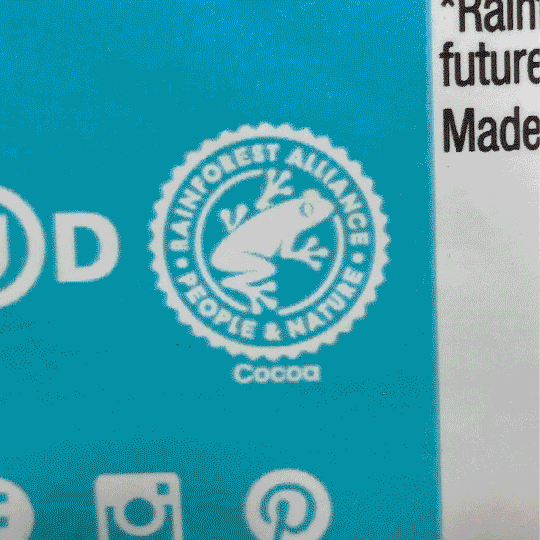
*Based on the world production volume of 4.58M metric tons of cocoa and 10M+ metric tons of coffee. (Sources: International Cocoa Organization, International Coffee Organization)
Certification Data
Training
Wide-scale change starts with helping farmers tackle challenges specific to their unique circumstances. Through certification, we provide training to help farmers grow better crops, adapt to climate change, increase their productivity, and improve their incomes.
Farmers and workers of all genders play an important role in agriculture, but women often have less access to resources, information, and training programs than men. As we move forward, we will increase our efforts to reach more women through our training and address challenges that disproportionally affect them.
individuals trained (44% increase since 2022)
29%
of all trained individuals were women
1.4k+
trainings delivered across 35 countries
Brand Reach
“We’re All In” Campaign
Consumers are a critical part of our alliance. Their everyday actions are what build momentum for a world where people and nature thrive together—but lately, the impact of these daily choices has been called into question.
In November 2023, our “We’re All In” campaign sent a clear message: Pessimism is out, optimism is in. With our green frog taking viewers on an enlightening journey, the video is a reminder that our actions, however big or small, do matter. The campaign resonated widely with audiences, amplifying our message that, together, we can create a better world.
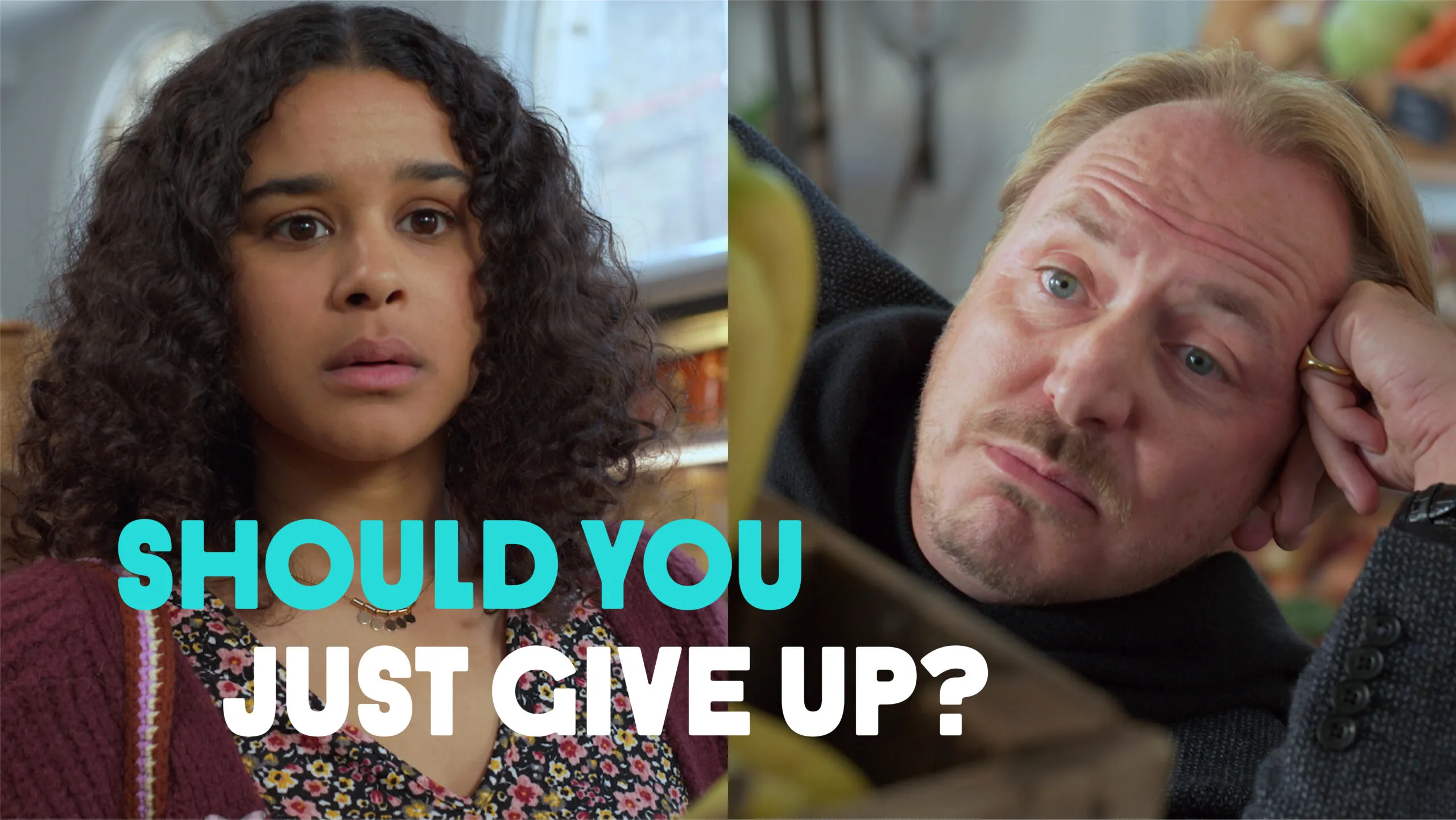
50 million
social media impressions
6 million
views
700,000 engagements
with influencer content
The Rainforest Alliance Brand
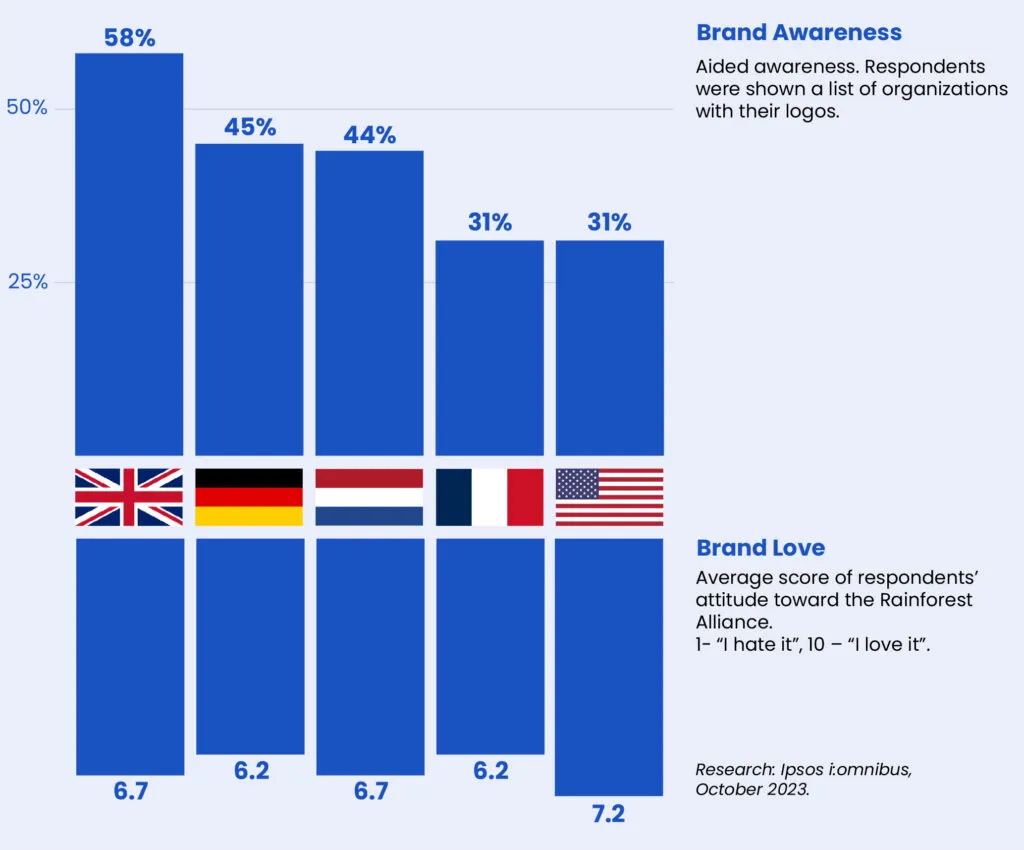
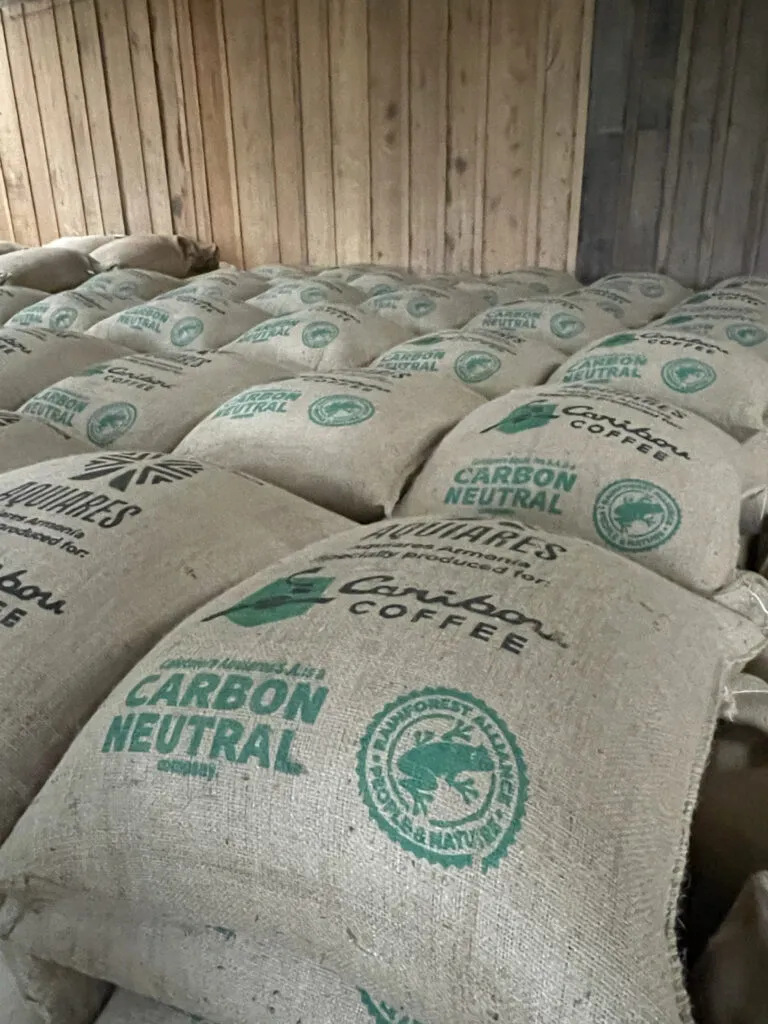

1.85+ million
social media followers
9+ million
website visits
65
influencers partnerships in 8 countries
27 k+
media mentions of the Rainforest Alliance and our programs
98%
of media mentions were positive or neutral
In the News
Staff Statistics
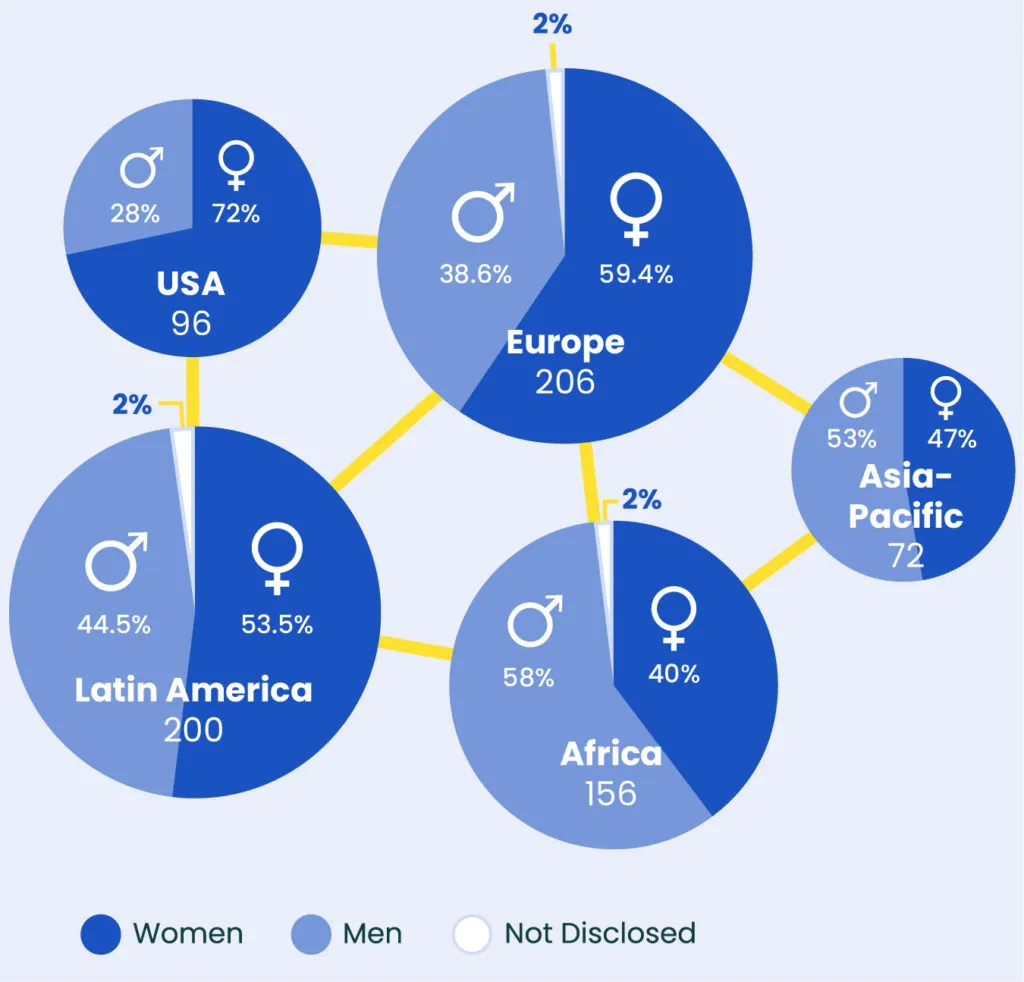
730 total staff
in 35 countries across 6 continents
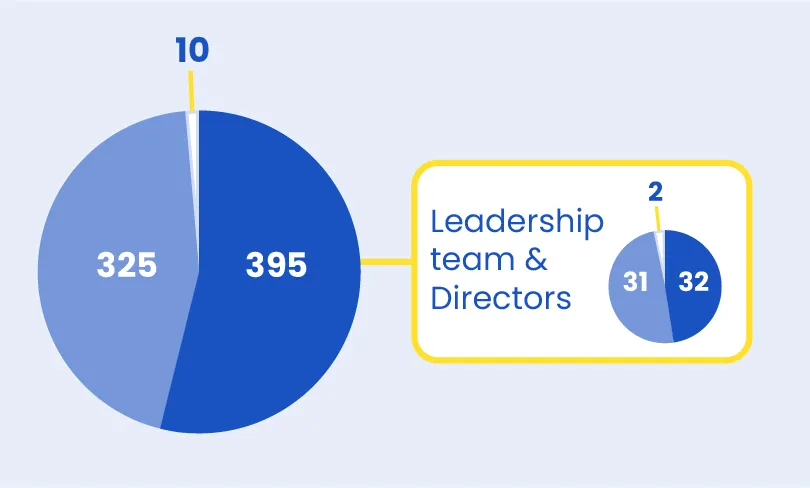

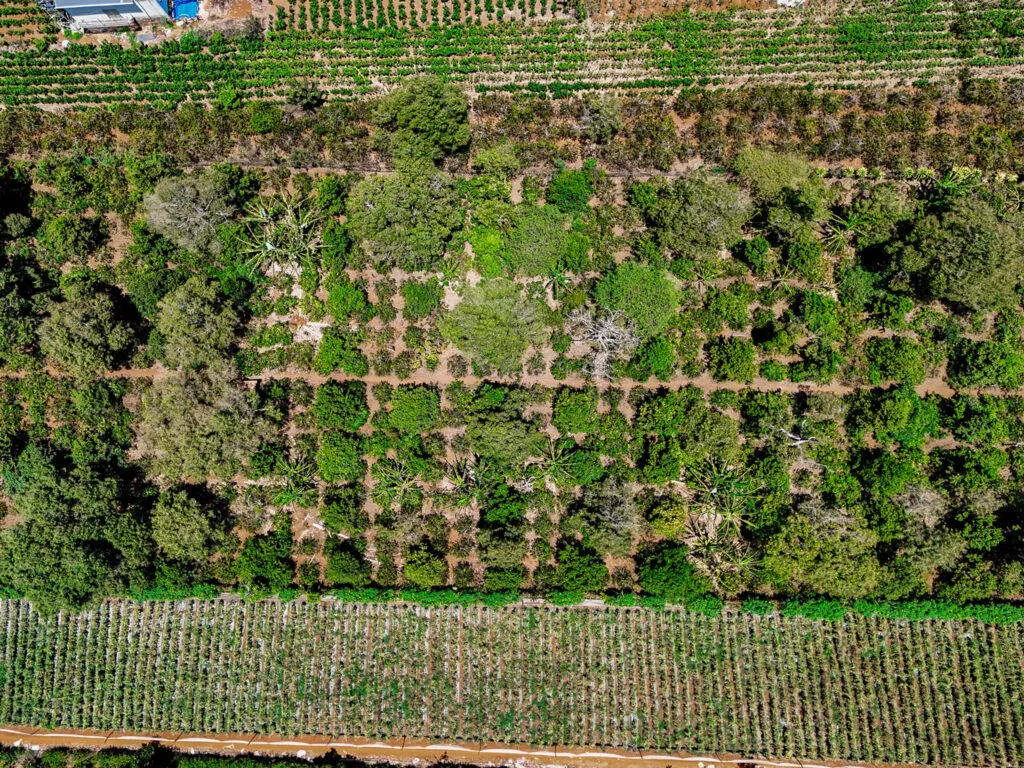
Certification & Beyond
Regeneration in Action: A Farmer’s 40-Year Journey in Vietnam
After decades of conventional coffee farming, in 2008, Trinh Tan Vinh decided to become Rainforest Alliance Certified and embrace a more sustainable way of growing—setting him on a path toward regenerative farming.
By gradually adopting practices to reduce his pesticide and fertilizer use and enrich the land, he transformed his farm into a thriving ecosystem and prosperous business. Today, his income is about 40 percent higher than that of other farmers in his area.
“The ancients often said that ‘land is the basis of agriculture,’ but many farmers—including me in the past—had forgotten this and listened to the advertisements of the fertilizer and pesticide companies.”
Trinh Tan Vinh
coffee farmer
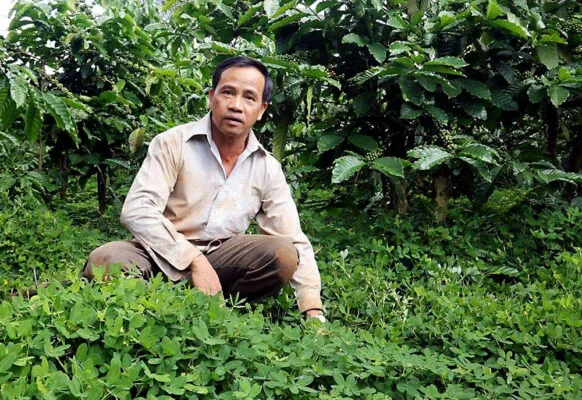
Vietnam
Trinh Tan Vinh’s dedication to regenerative farming practices has transformed his coffee farm into a prosperous business.
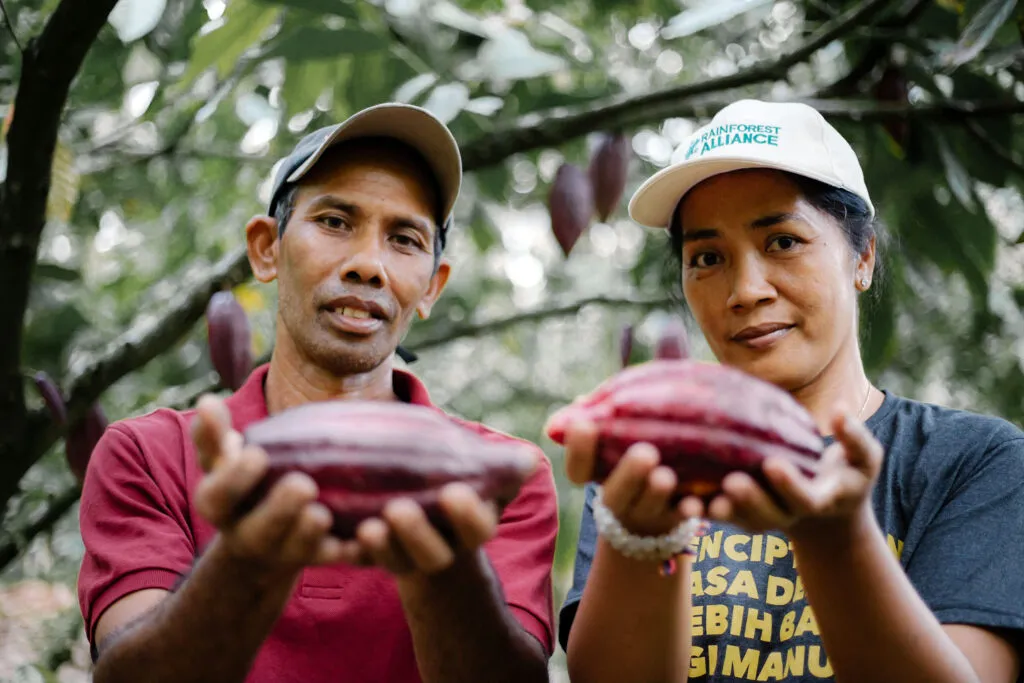
2.9+ million
farm units assessed for risk of deforestation (10% growth since 2022)
Rainforest Alliance Certification Helps Companies Make the Leap Toward EUDR Compliance
Ending deforestation has always been at the heart of the Rainforest Alliance’s mission, so we were thrilled when the European Union Regulation on Deforestation-free Products (EUDR) passed. Better yet, we only had to fast-track a few crucial tweaks to ensure our certification program was ready to support companies to comply with the new regulation.
Before the end of 2024, companies that sell deforestation-risk commodities to EU markets (or export them from the EU) will need to meet the requirements of the EUDR, proving that their products do not come from land deforested after December 31, 2020. Our offerings include a range of tools and systems—like our AI-powered risk maps and EUDR Deforestation Risk Assessment Tool—that put farmers at the center and help cocoa and coffee companies get closer to meeting their EUDR obligations for both certified and non-certified products.
Raising the Bar: What We Did to Strengthen Our Assurance System
Based on third-party auditing by independent certification bodies, our assurance system verifies that businesses and farms follow the requirements of Rainforest Alliance certification.
In 2023, we made this system more effective by:
- Continuing to train and monitor the work of 30 certification bodies around the world (including auditing them and reviewing their licenses)
- Tailoring guidance and policies to specific topics and sectors (including EUDR related updates for auditing, updated labor risk maps, and more)
- Strengthening our internal investigation audit procedure for addressing complaints and improving our grievance mechanism procedure
- Streamlining auditing tools and assurance documents to make the process simpler and cheaper for farmers
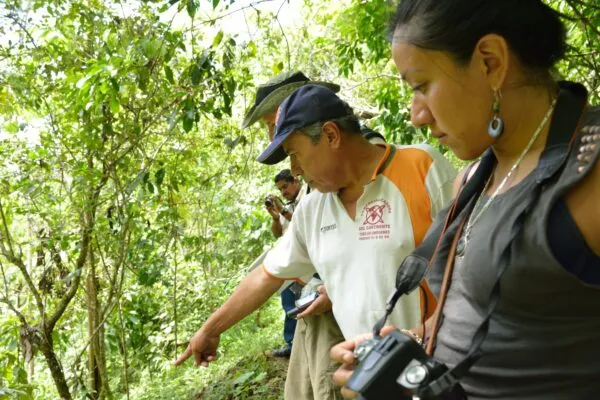
Due Diligence
Our assurance model is made up of four parts: auditing, risk management, stakeholder engagement, and continuous improvement. Together, these elements make our certification program a credible tool for corporate due diligence.
50+ trainings
for certification bodies worldwide
4,250
training participants
95 audits
of certification bodies
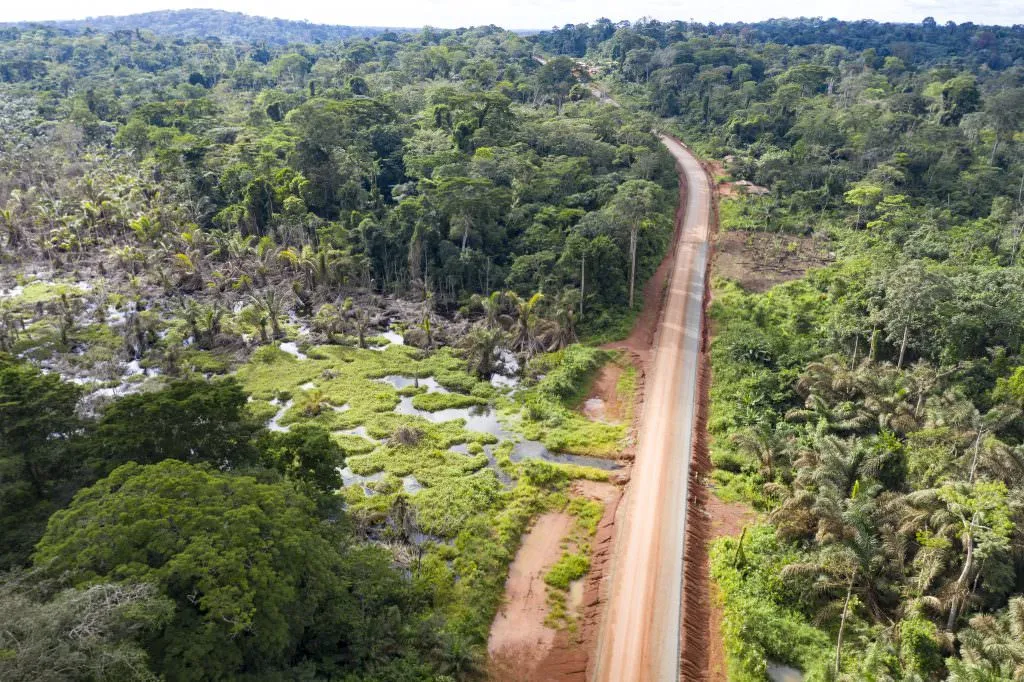
Leading the Way to Responsible Supply Chains with the Accountability Framework
In 2019, the Rainforest Alliance co-led the development of the Accountability Framework, a globally respected roadmap for building responsible supply chains beyond certification. We used this vital toolkit to help the Forest Positive Coalition of Action (FPC)—a group of 21 global brands with a combined value of US$1.8 trillion—create responsible sourcing plans for commodities linked to deforestation like soy, beef, palm oil, and timber.
After working with the Rainforest Alliance, 100 percent of FPC members set a deforestation-free commitment for at least one key commodity in their supply chains. In contrast, fewer than half of all companies in these industries have made such a commitment.
Discover our certification highlights from 2023:
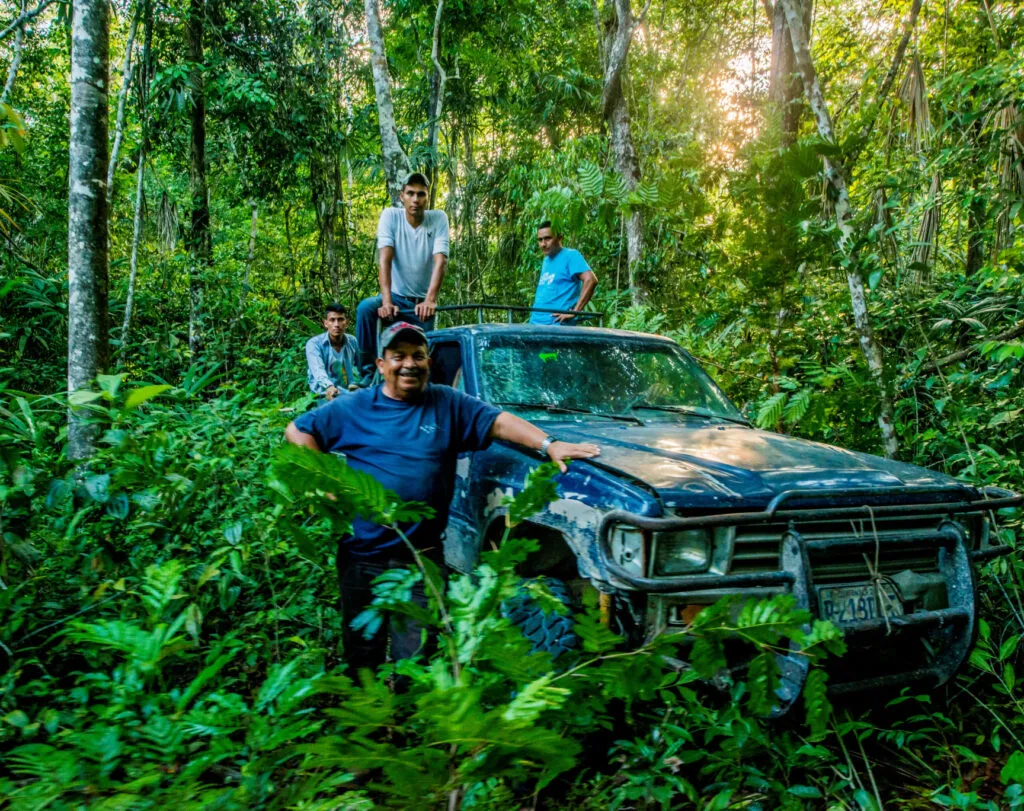
Thriving Landscapes
Local Communities in the Driver’s Seat: A New Vision for the Future
From the dense forest belts of Mount Kenya to the sprawling canopy of the Selva Maya, protecting the world’s most iconic—and threatened—landscapes is central to our work at the Rainforest Alliance. To make the greatest impact, we focus our efforts on five key production landscapes.
We believe that those who live on the land know best how to take care of it. That’s why the Rainforest Alliance takes a unique and powerful approach: We center the vision for landscape sustainability that the communities and their alliances establish. It is this vision that forms the foundation and fuel for all our work to build a more sustainable future.
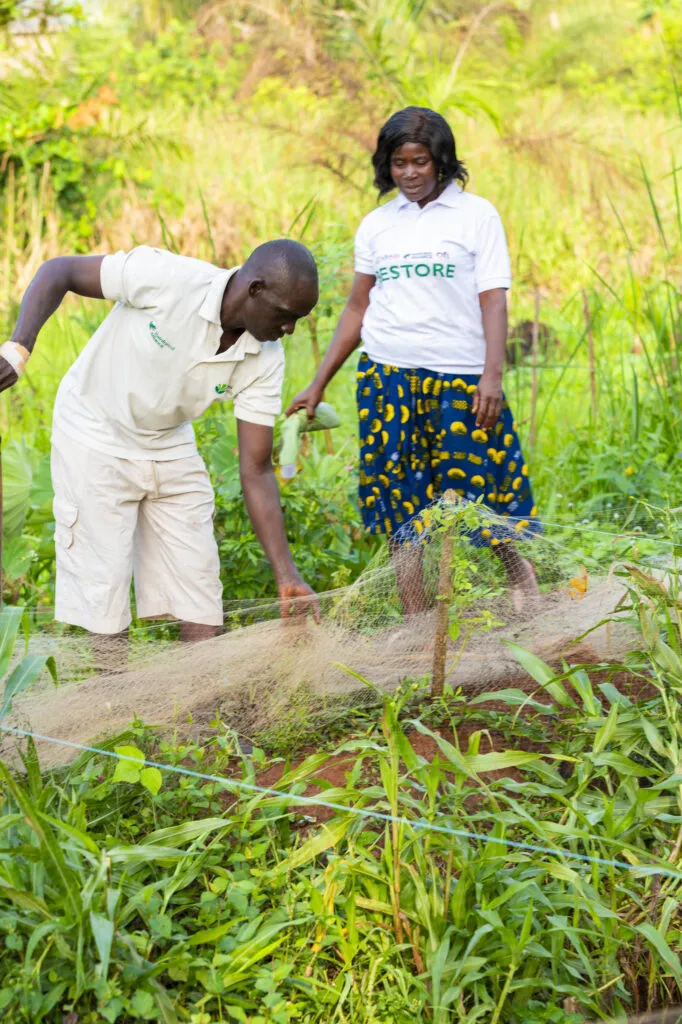
How We Are Regenerating Ghana’s Sui River Landscape
In Ghana’s Sui River region—one of West Africa’s most important cocoa-growing areas—we are working with communities to support regenerative agriculture, forest restoration, and thriving local economies.
Representatives from 106 farming communities joined forces with government officials, cocoa traders, chocolate manufacturers, and the Rainforest Alliance to develop a landscape action plan for 382,000 hectares.
Through the plan, farmers are:
- Learning to apply regenerative and climate-smart practices, including planting shade trees, composting, and conserving water.
- Getting support setting up additional businesses, such as vegetable and snail farming, bee keeping, and honey production to boost their incomes.
- Planting tree seedlings on cocoa farms, along riverbanks, and in formerly degraded areas.
- Gaining ownership of trees through a simplified tree registration process.
5,300+ farmers
adopted climate-smart practices
291 farmers
received startup funds for side businesses
420,000+
tree seedlings planted
trees registered
Landscape highlights:
How We Partner with Indigenous Communities to Regenerate Landscapes
Managing at least one quarter of the world’s lands, Indigenous peoples have proven themselves to be the foremost forest guardians. Drawing on millennia of traditional knowledge, these communities have long practiced the key elements of regenerative agriculture.
From the Maya technique of planting complementary crops together to the complex irrigation systems used to sustainably manage water in parts of India, it’s clear that we have much to learn from these communities. That’s why we’ve always made it a priority at the Rainforest Alliance to partner with—and take our cues from—Indigenous peoples wherever we work.
“I envision a time when the intellectual monoculture of science will be replaced with a polyculture of complementary knowledges. And so all may be fed.”
Robin Wall Kimmerer, Braiding Sweetgrass
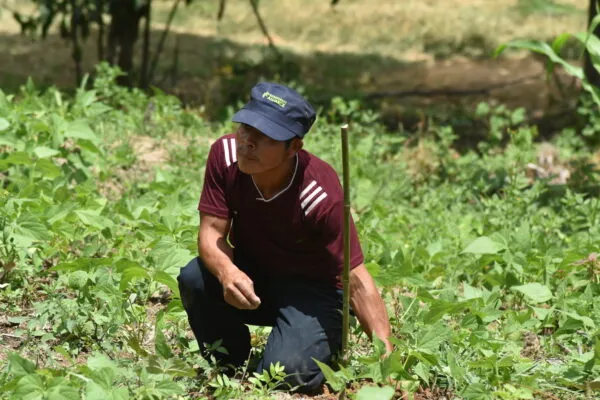
What’s Old is New Again
The Indigenous practices that inspired the regenerative agriculture movement.
Key case studies:
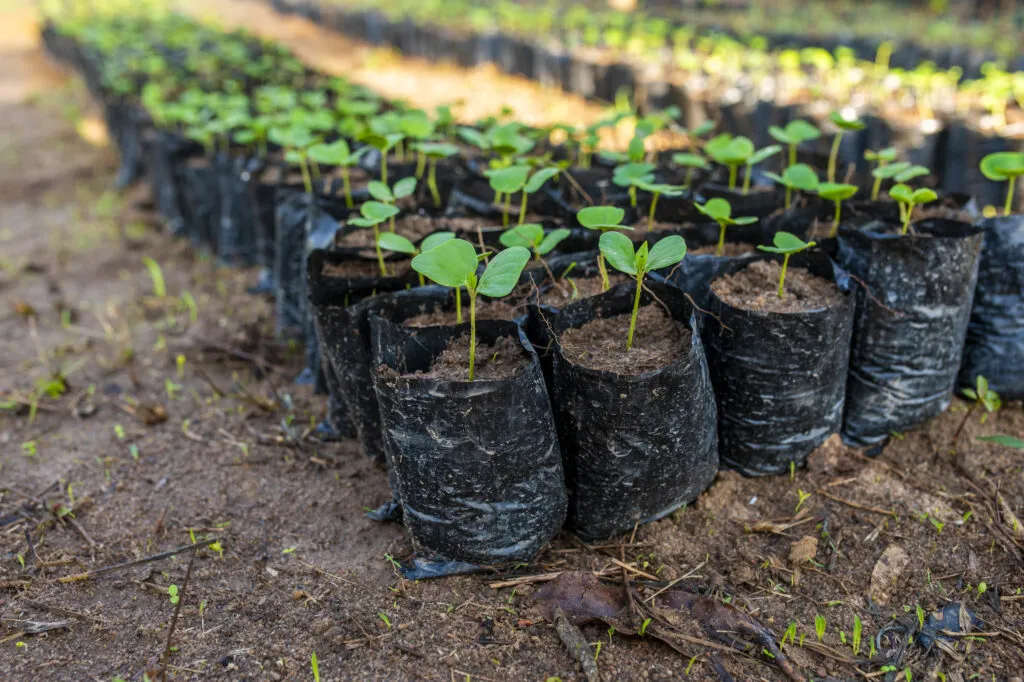
Finances & Funding
Revenue & Support
| 1. Royalty revenue (56%) | US$ 55,641,447 |
| 2. Government, foundation, and corporate grants and contracts (28%) | 27,170,843 |
| 3. Major donors and individuals (3%) | 3,141,822 |
| 4. Other contract revenue (6%) | 6,162,050 |
| 5. In-kind contributions (1%) | 1,334,880 |
| 6. Other (5%) | 5,310,707 |
| TOTAL REVENUE & SUPPORT | US$ 98,761,749 |

Expenses
| 1. Program services (77%) | US$ 80,966,908 |
| 2. Management and general (20%) | 21,017,298 |
| 3. Fundraising (3%) | 3,419,148 |
| TOTAL EXPENSES | US$ 105,403,354 |

Summary
| TOTAL REVENUE & SUPPORT | US$ 98,761,749 |
| TOTAL EXPENSES | 105,403,354 |
| OTHER ACTIVITY Foreign Currency Translation | (638,722) |
| ASSETS Change in Net Assets Net Assets, Beginning of Year | (7,280,327) 66,058,885 |
| Net Assets, End of Year | US$ 58,778,558 |
Rainforest Alliance Holding, Inc. is an international non-profit organization, organized on January 1, 2018 in the State of Delaware to serve as the common parent non-profit corporation providing centralized governance and oversight over Rainforest Alliance, Inc. and Stichting Rainforest Alliance. This financial summary represents the consolidated revenue and expenses for 2023 for the organization.
Sources of Income
How is the Rainforest Alliance Funded?
Donors
We extend our deepest thanks to the thousands of you who make our work possible. Your commitment to our mission is helping us create a better world for people and nature.
The donors who signed contracts with us in 2023 and contributed more than US$ 1,000 to support our work are listed below.
7.9k+
individual donors
49
institutional donors
-
2023
Annual Report
-
2023
Annual Report
-
2023
Annual Report
-
2023
Annual Report
-
2023
Annual Report
Alliances
Solving our world’s sustainability crises requires a combination of on-the-ground insights and action, along with global partnerships that can tackle the big picture. That’s why the Rainforest Alliance is proud to co-lead a range of initiatives—such as the Accountability Framework initiative, LandScale, Forest Allies, and 1000 Landscapes for 1 Billion People—that are finding innovative solutions to systemic challenges within supply chains and landscapes. We also work hand in hand with our company partners to support their responsible sourcing commitments through certification and beyond.
61
coalitions and platforms that the Rainforest Alliance takes part in
Acknowledgements
Board of Directors
Daniel R. Katz, Chair • Peter M. Schulte, Treasurer • Tasso Azevedo • Sonila Cook • Sarah-Jane Danchie • Wendy Gordon • Marilú Hernández de Bosoms • Nina Haase • Dan Houser • Peter H. Lehner • Nalin Miglani • Vanusia Nogueira • Juan Esteban Orduz • Anurag Priyadarshi • Anisha Rajapakse • Eric B. Rothenberg • Paul Rubacha • Kerri A. Smith • Annemieke Wijn
Leadership Team
Chief Executive Officer – Santiago Gowland • Chief Program Officer – Ria Stout • Chief Financial Officer – Adam Cox • General Counsel – Molly Stark • Chief Data & Technology Officer – Ruth Newsome • Chief Development Officer – Gina Wood • Chief of Staff – Franck Sime • (Interim) Chief Marketing & Communications Officer – Paula Quazi • (Interim) Chief People Officer – Jean-Pierre Smiet • Senior Director for Mesoamerica – Miguel Angel Laporta • Senior Director for South America – Adriana Cortes • Senior Director for East and Southern Africa – Julius Ng’ang’a • Senior Director for West and Central Africa – Nadège Nzoyem • Senior Director for Asia Pacific – Chandra Panjiwibowo
Editors
Daria Koreniushkina • Laura Jamison • Jenna Pacitto • Michael Gibbons
Writer
Elizabeth Sensky
Designers
Patrick Floyd • Mason Philips • Joost Voets
Video Production
Justin Valdes
Web Development
Matt Nerger • Erica Rosset
Project Management
Marta Fiolhais
Contributors
Gabriela Cordon • Larissa Diakanua • Nurul Wara Firda • Paola Falla • Beldina Bella Gwada
Photographers
Joost Bastmeijer • Giuseppe Cipriani • Creagh Cross • Patricia Giron Gomez • Loes Heerink • Sergio Izquierdo • Zdeněk Macháček • Nu Images Communication


 Rainforest Alliance offices and staff locations
Rainforest Alliance offices and staff locations









